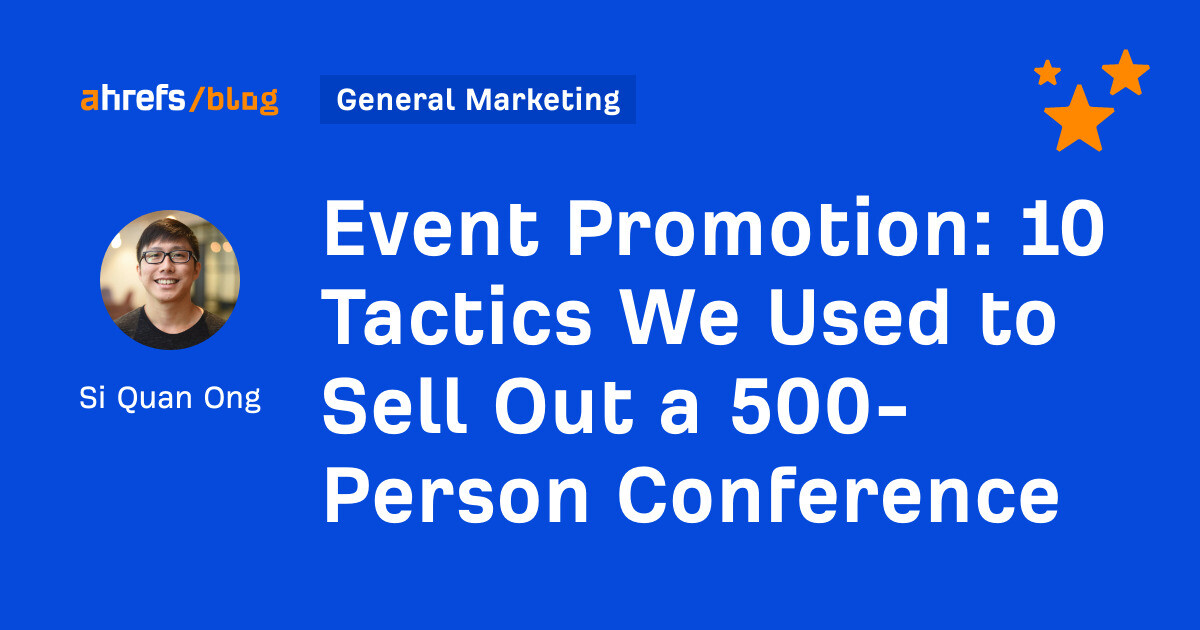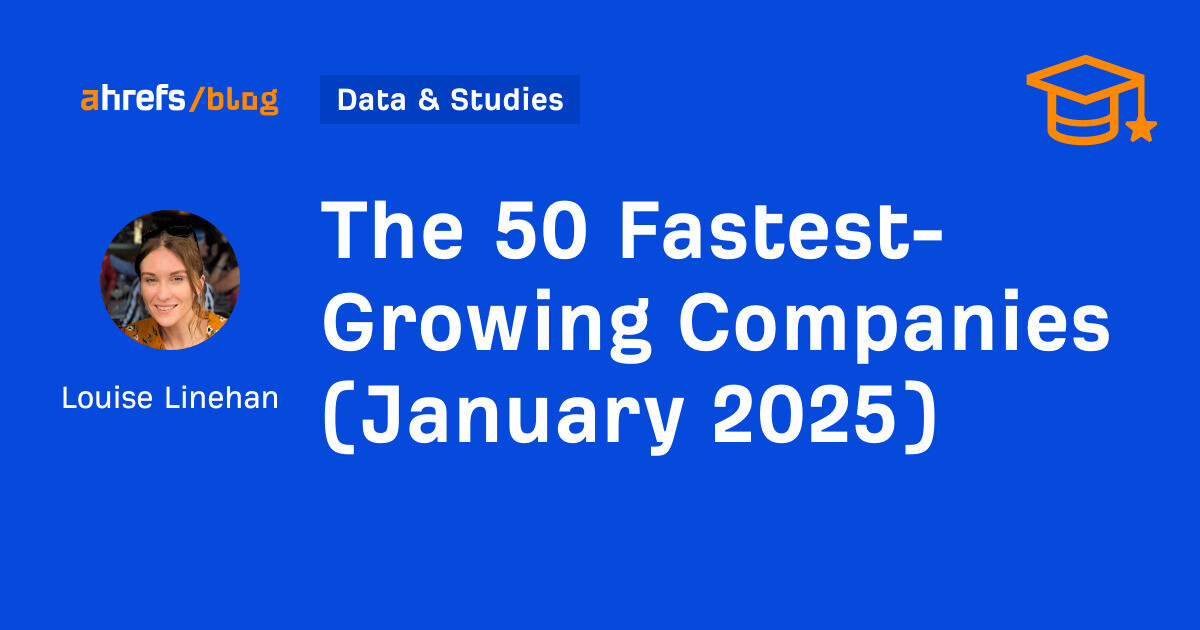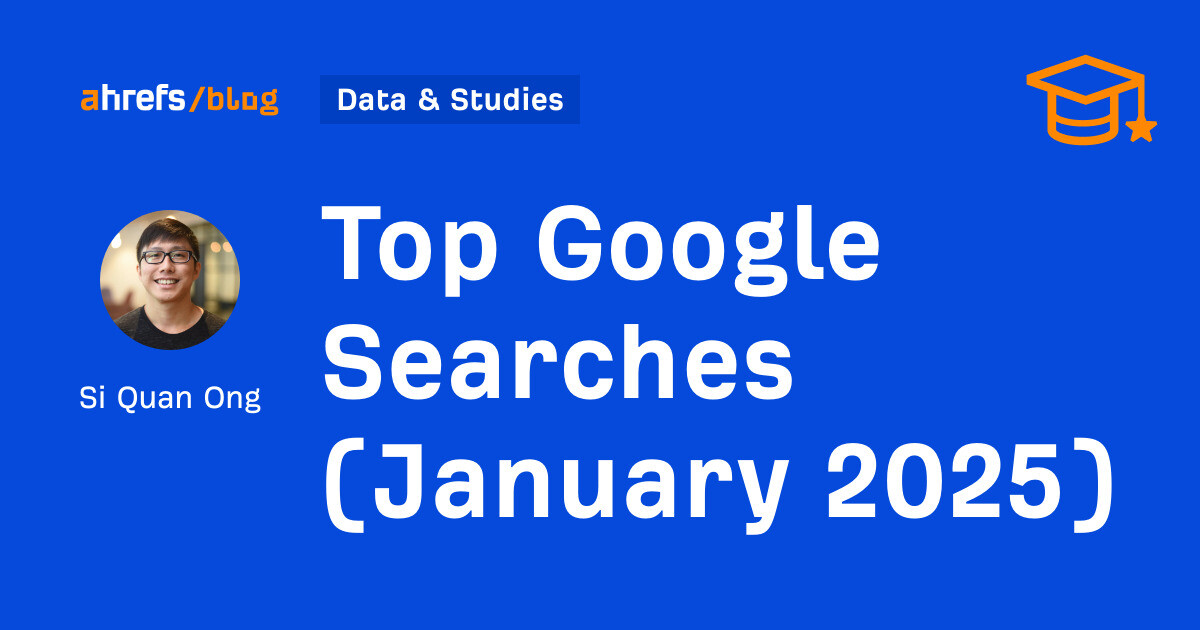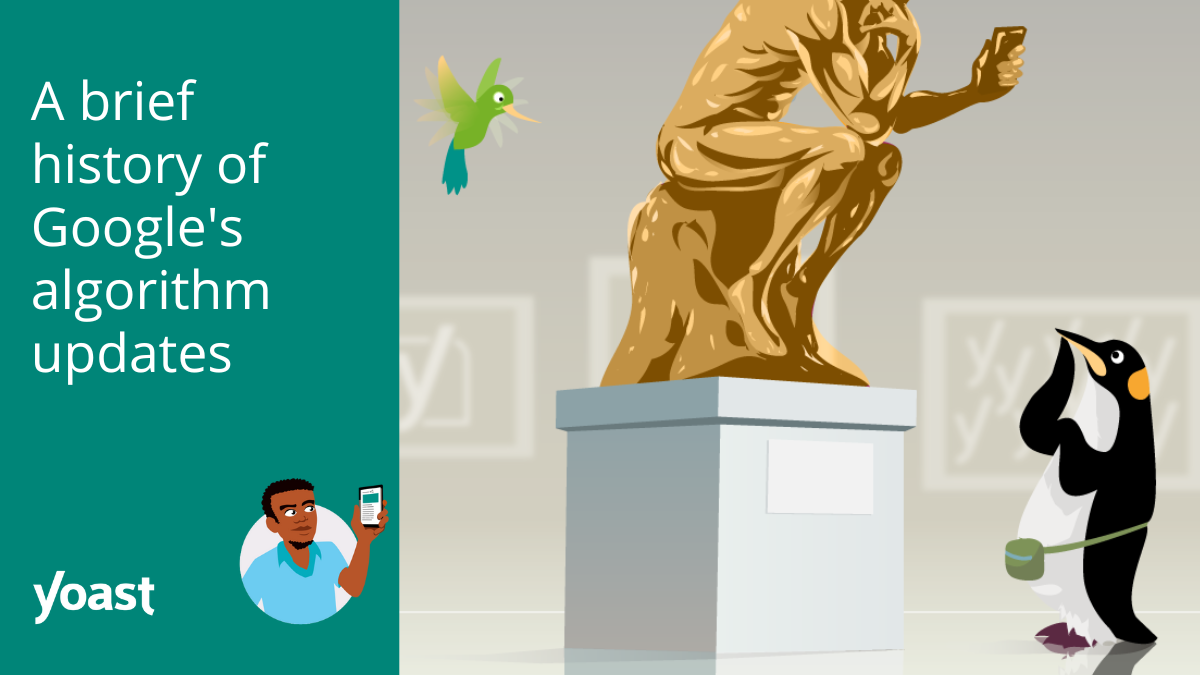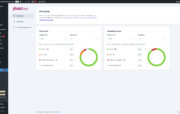Last year, we ran Ahrefs Evolve: a sold-out, 2-day, 500-person conference at Pan Pacific Orchard in Singapore.
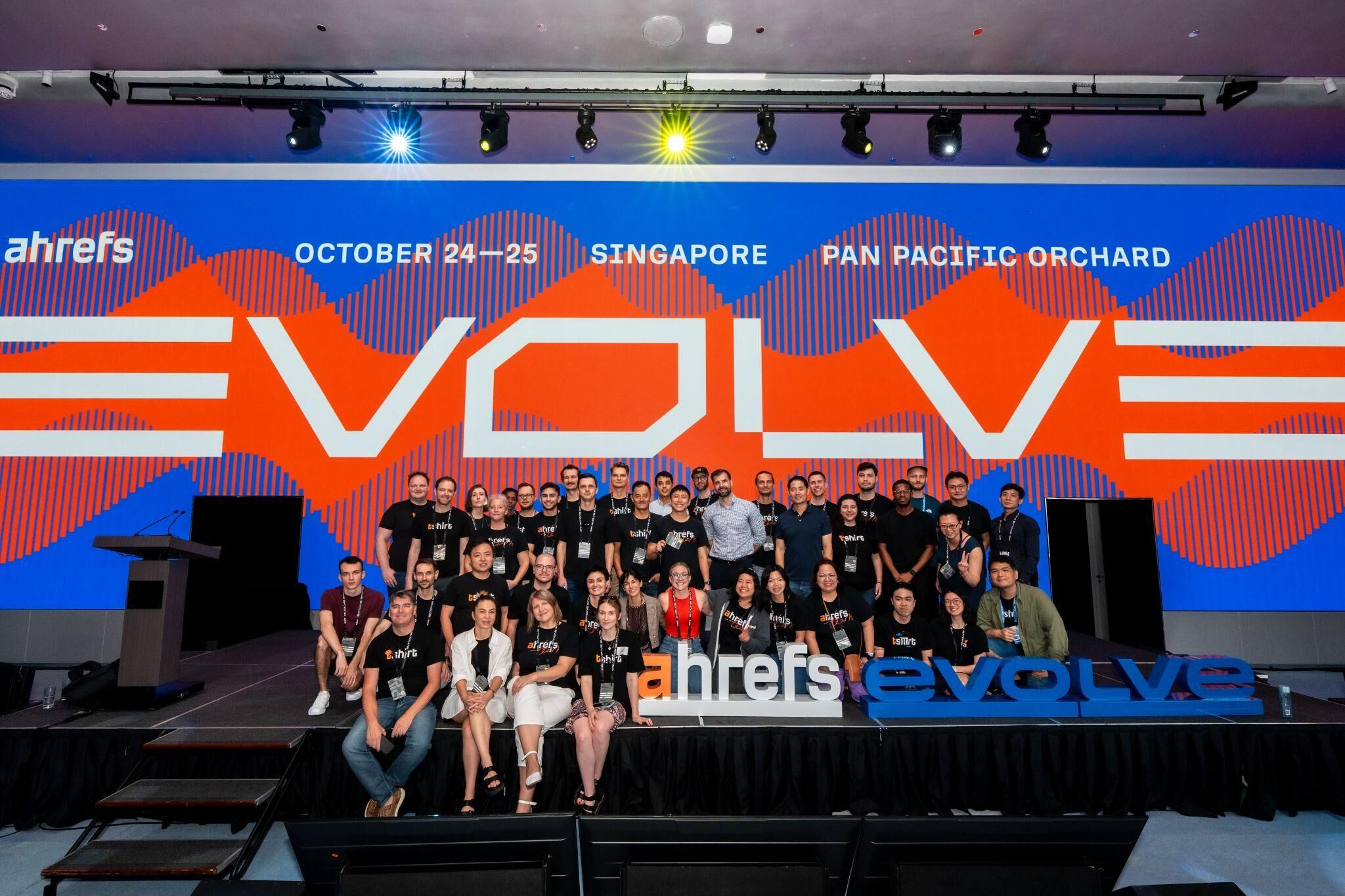
I interviewed Shermin Lim, our events marketer, to find out how we marketed the conference and sold out all our tickets.

Here’s everything we did to promote the conference. You can use these same strategies (or be inspired by them) for your own event—big or small.
Event participants are notoriously last-minute buyers. Running early-stage discounts is a good way to get them to commit earlier and stop your events team from panicking.
For Ahrefs Evolve, we ran two types of discounts:
- Early bird pricing — We ran an early bird discount until a specific date (1 August 2024 to be exact). This clearly-stated deadline encouraged people to buy early.
- Group discounts — We offered deals for bulk buys (up to 20%). This is especially useful if your target audience is from agencies or companies that typically send multiple employees (which is the case for our industry.)
You can see our early-stage Evolve pricing here:
- Regular ticket at $650; early bird pricing of $570 (20% discount for bulk purchases)
- VIP ticket at $980; early bird pricing at $840
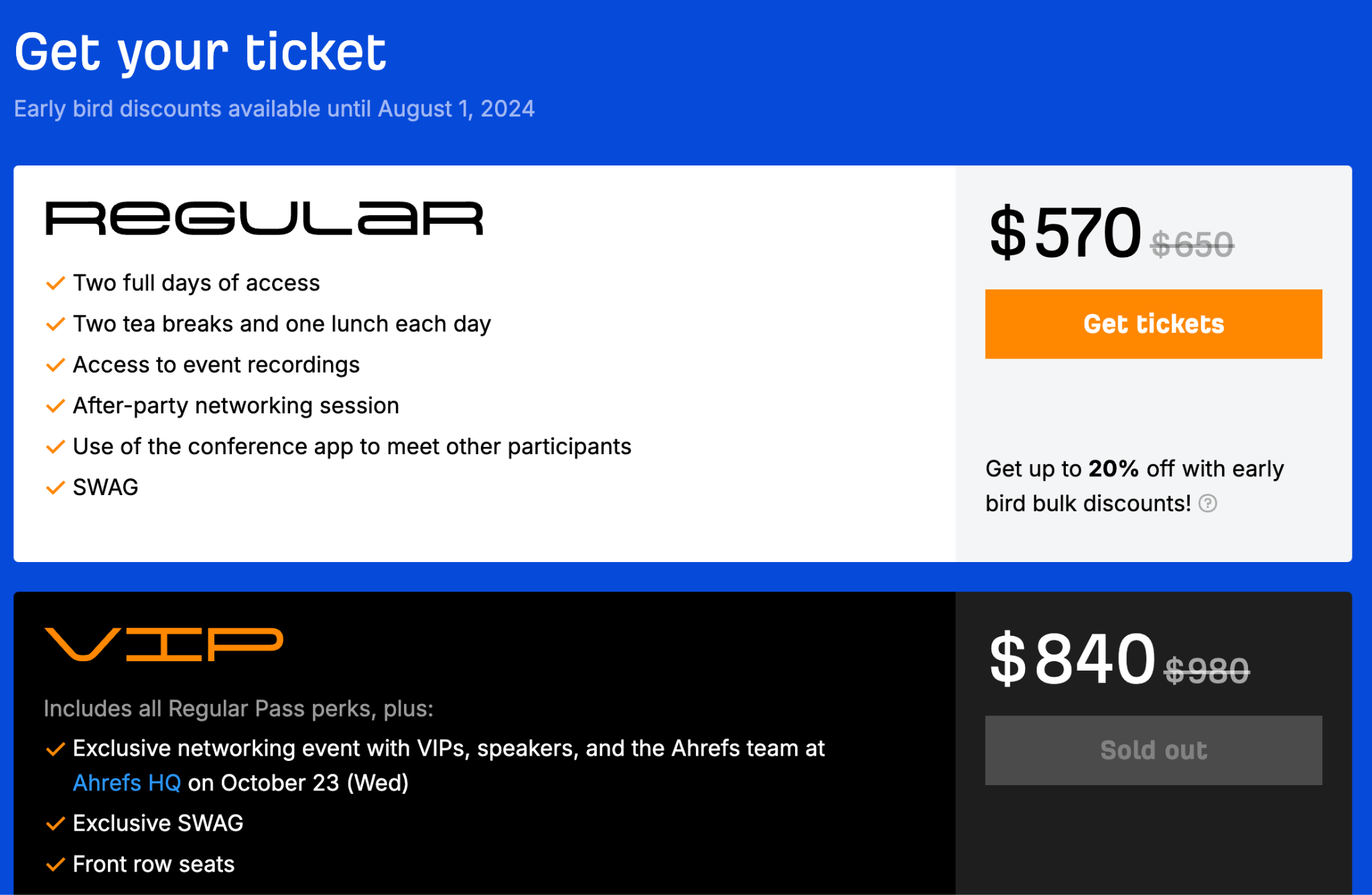
What discount should you give? There’s no exact answer—it all comes down to your gut, budget, competitive analysis, and a pinch of experimentation.
Your event landing page will be one of your most important marketing assets.
After all, it is a one-stop place for potential attendees to see every piece of event info and also the place for them to click ‘buy’. You also want to create this page early so it can rank high on Google when people hear of your event name and search for it.
Here’s what we included in ours:
- Event description
- Value proposition
- Speaker lineup with bios
- Event agenda
- Pricing and ticket tiers
- Information about pre-event workshops (speakers, bio, pricing, agenda)
- Sponsor information
- Venue information with photos and videos
- FAQs
- Why attend conferences (with explanations from two highly recognizable experts in the industry)
- Local attractions and travel tips
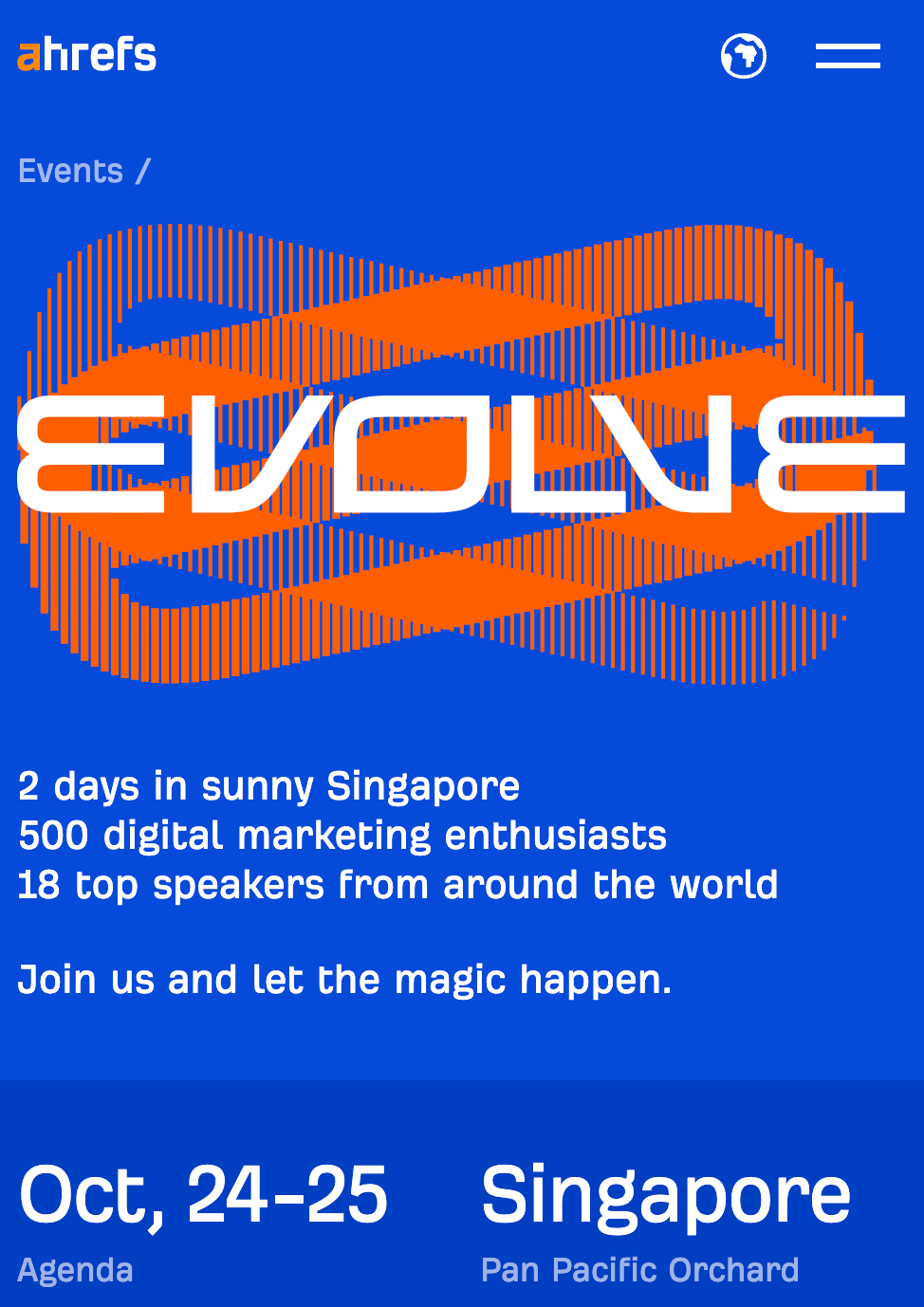
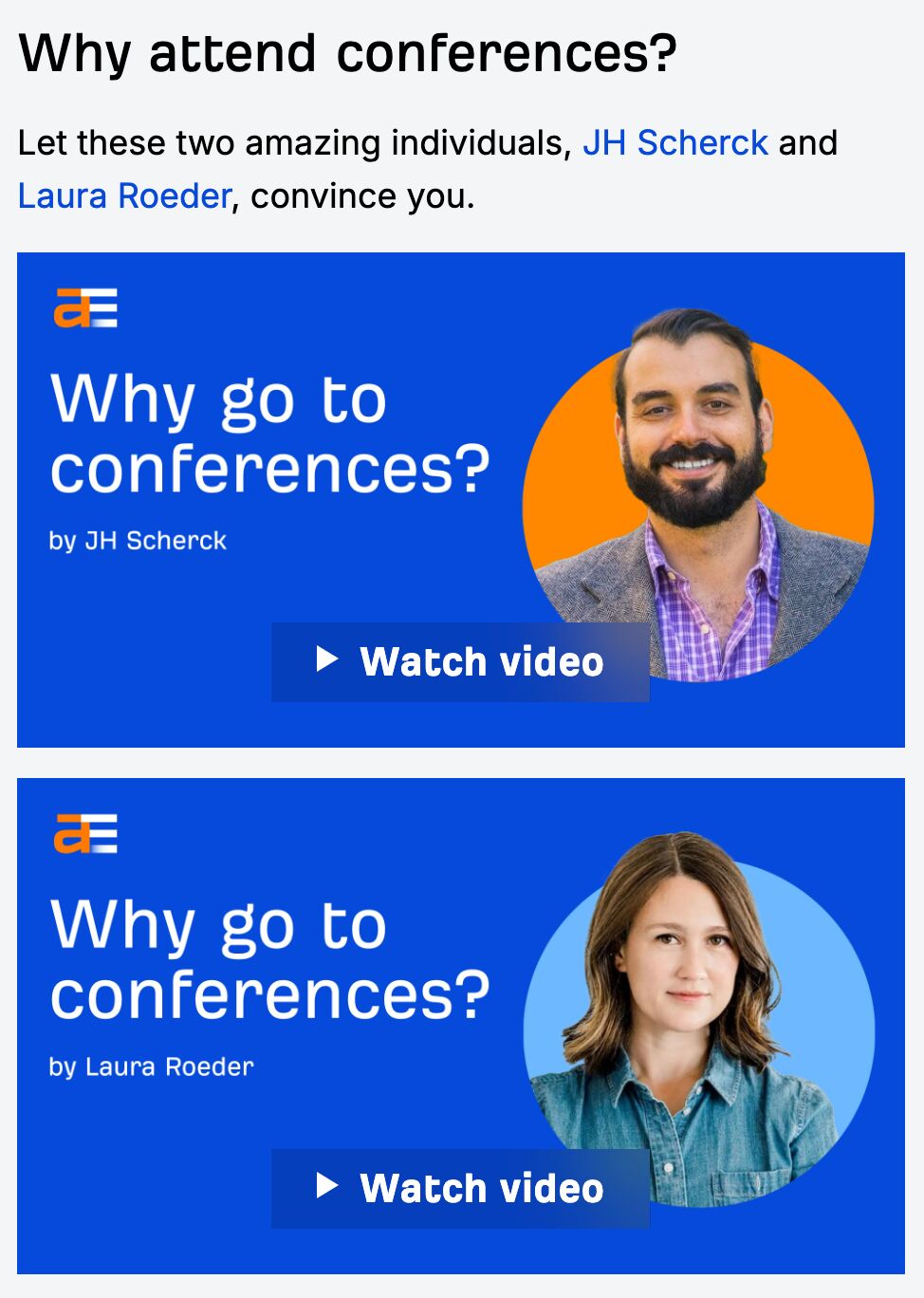
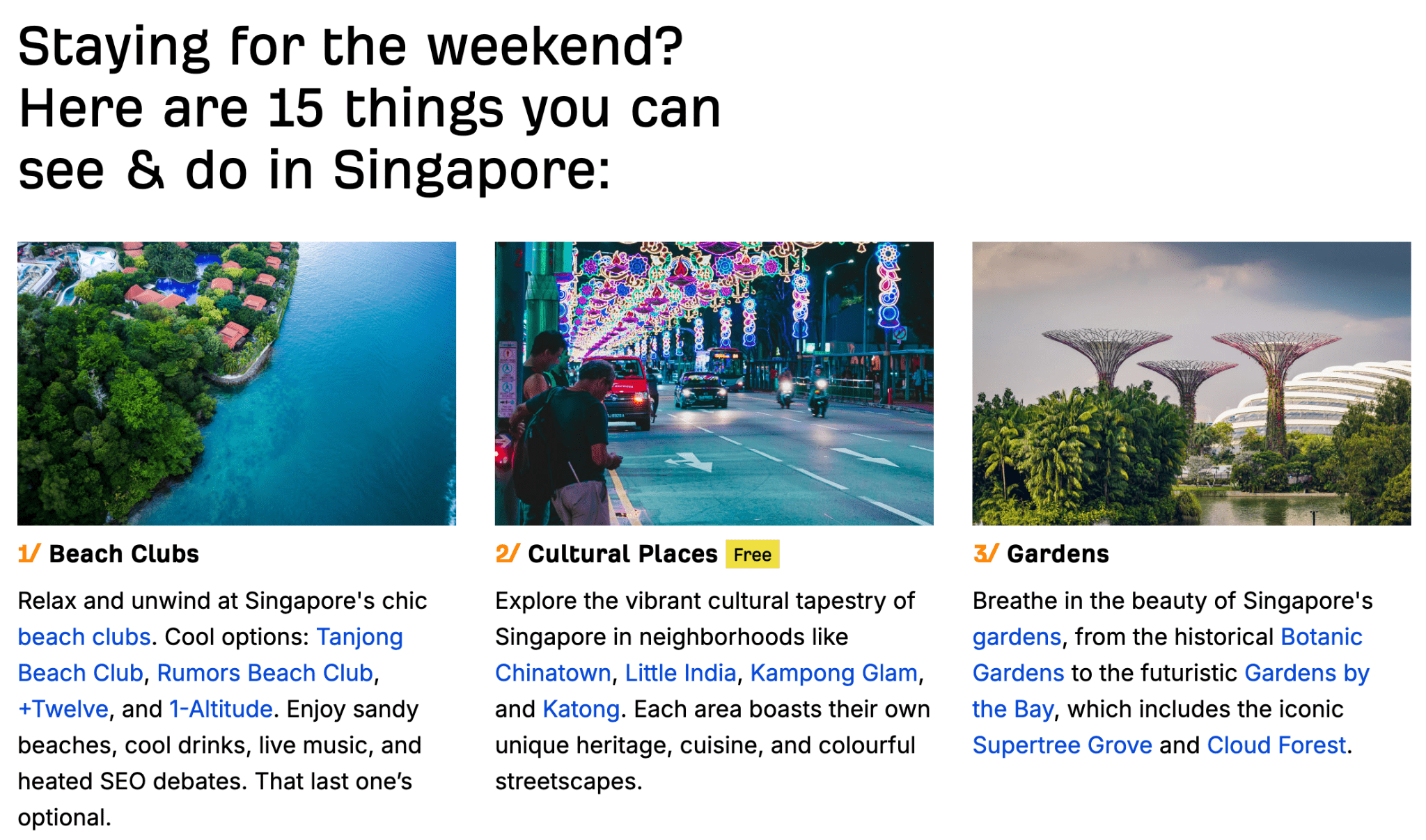
Make this page early. Don’t worry if you have yet to finalize any details. Just leave them as “TBD”, then update the page gradually as you confirm the venue, speakers, and sponsors.
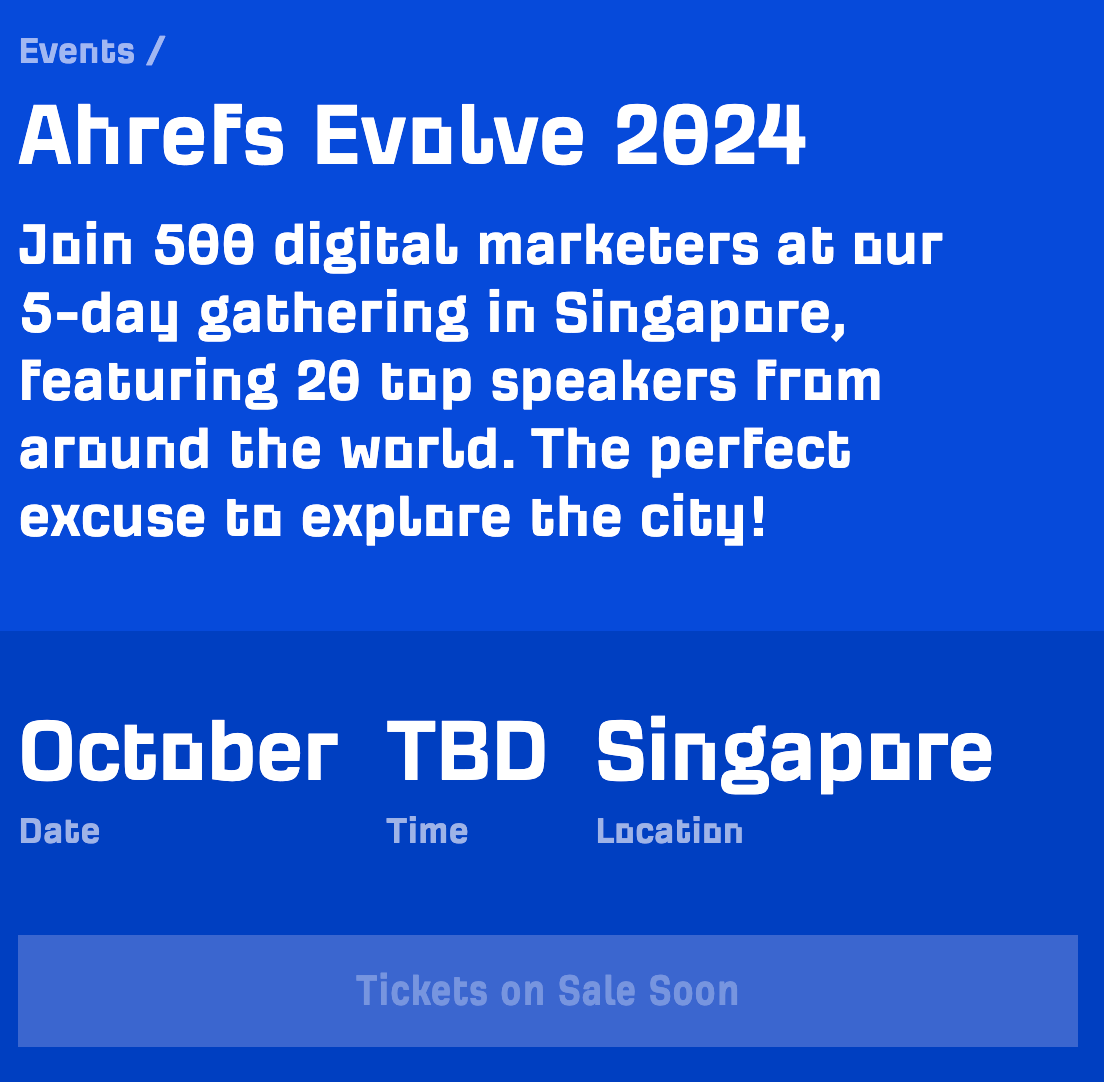
Starting from your audience is the most straightforward way to gain awareness for your event.
We posted regular announcements and updates on LinkedIn and X, including our team members’ own accounts:
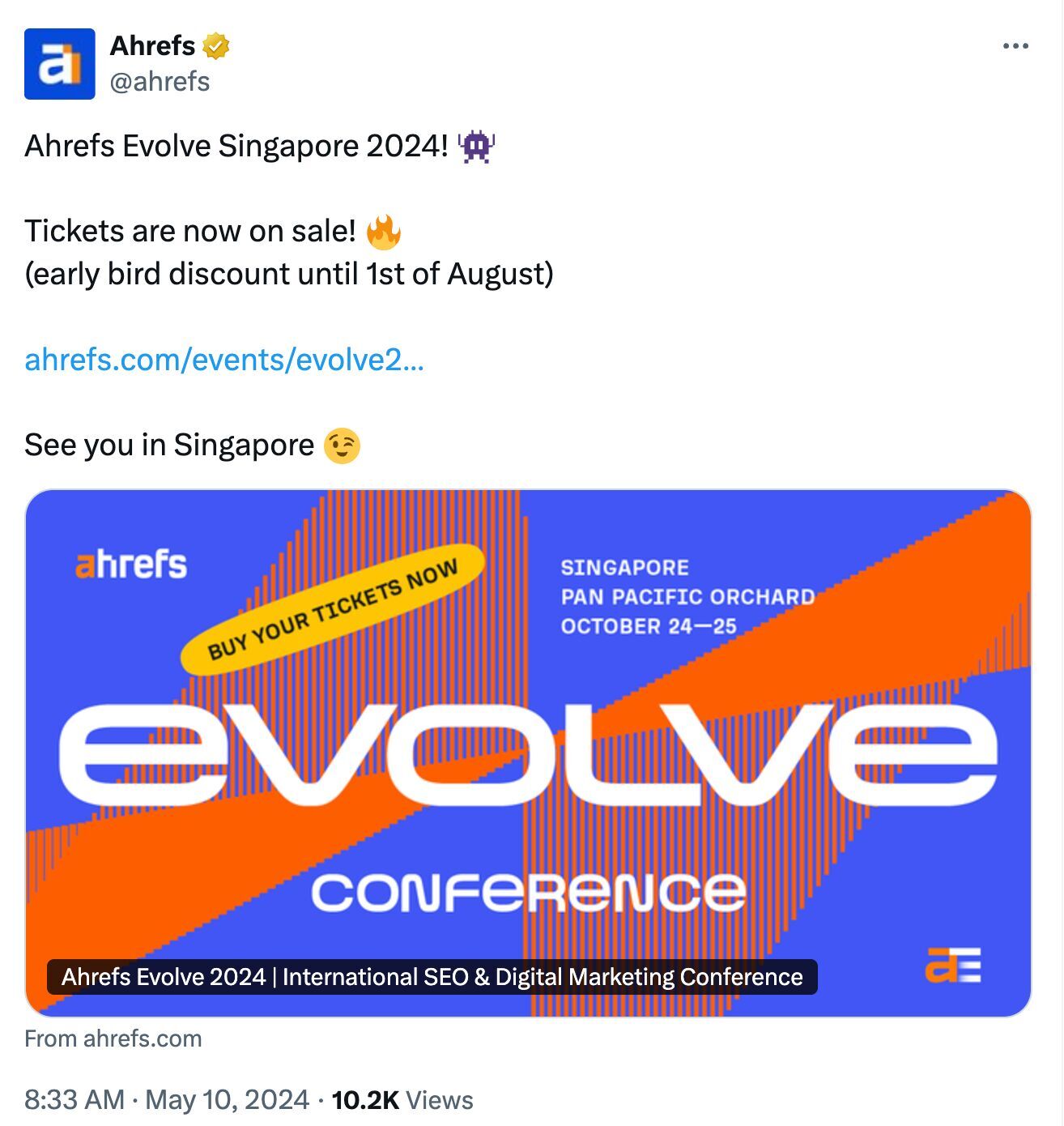
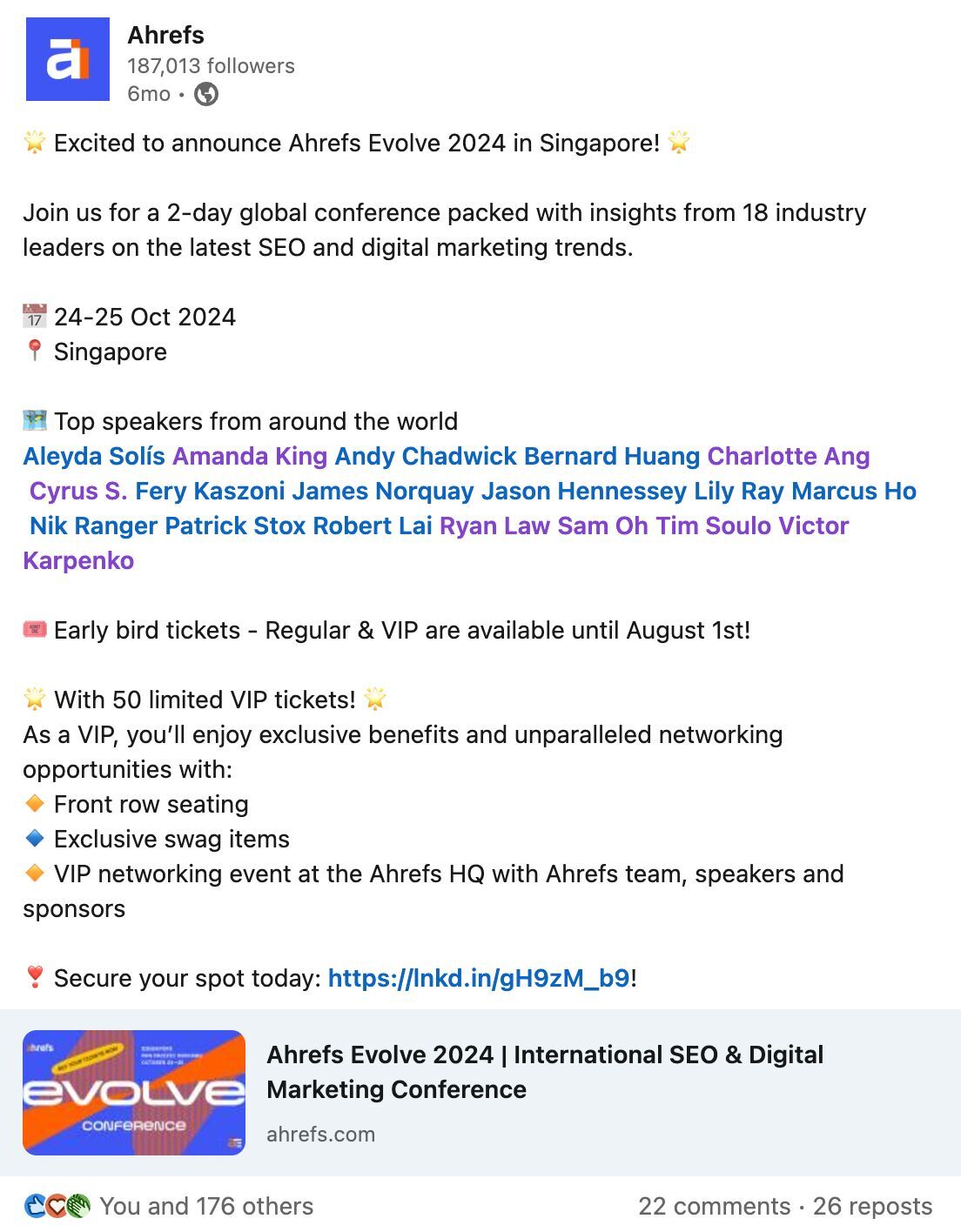
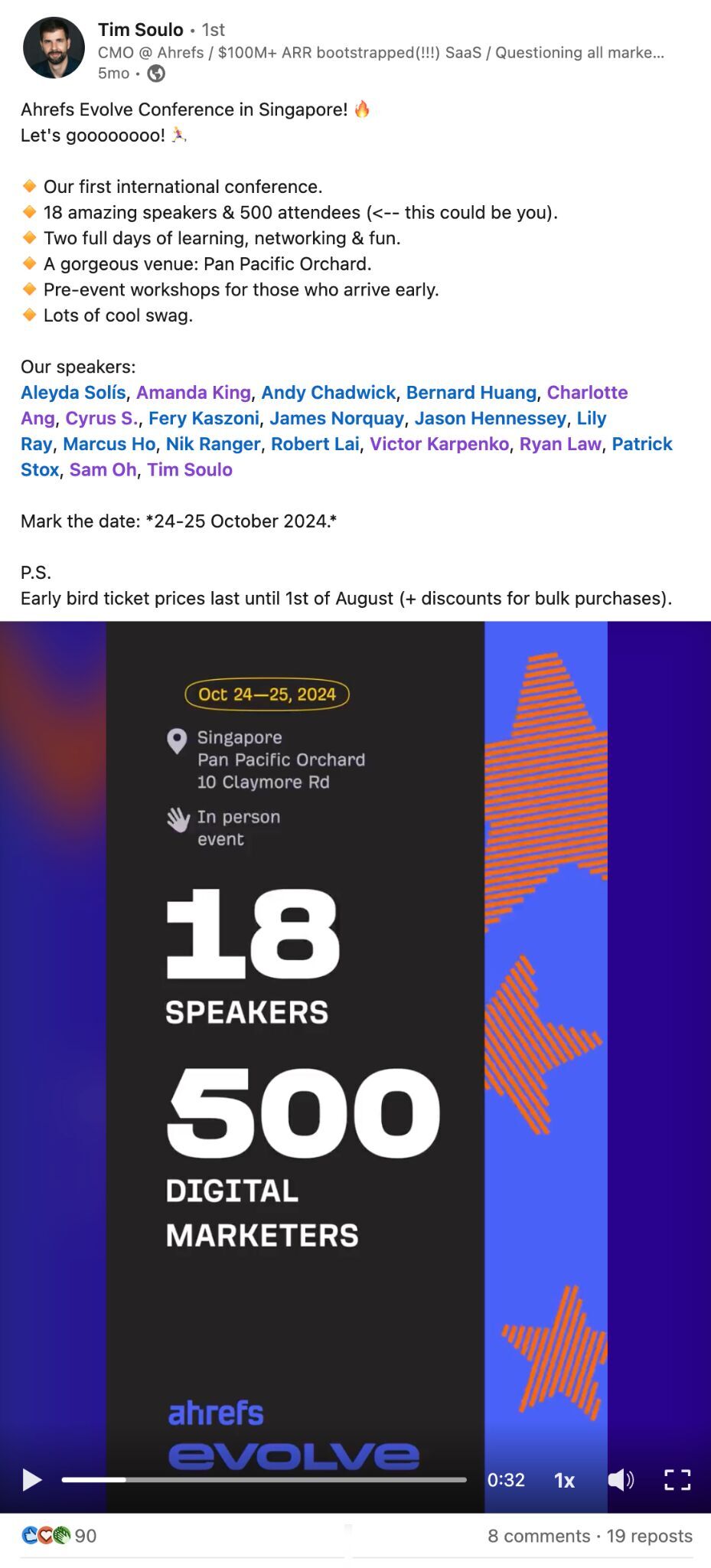
We sent targeted in-app messages to our customers, announcing our event and letting them know tickets were on sale:
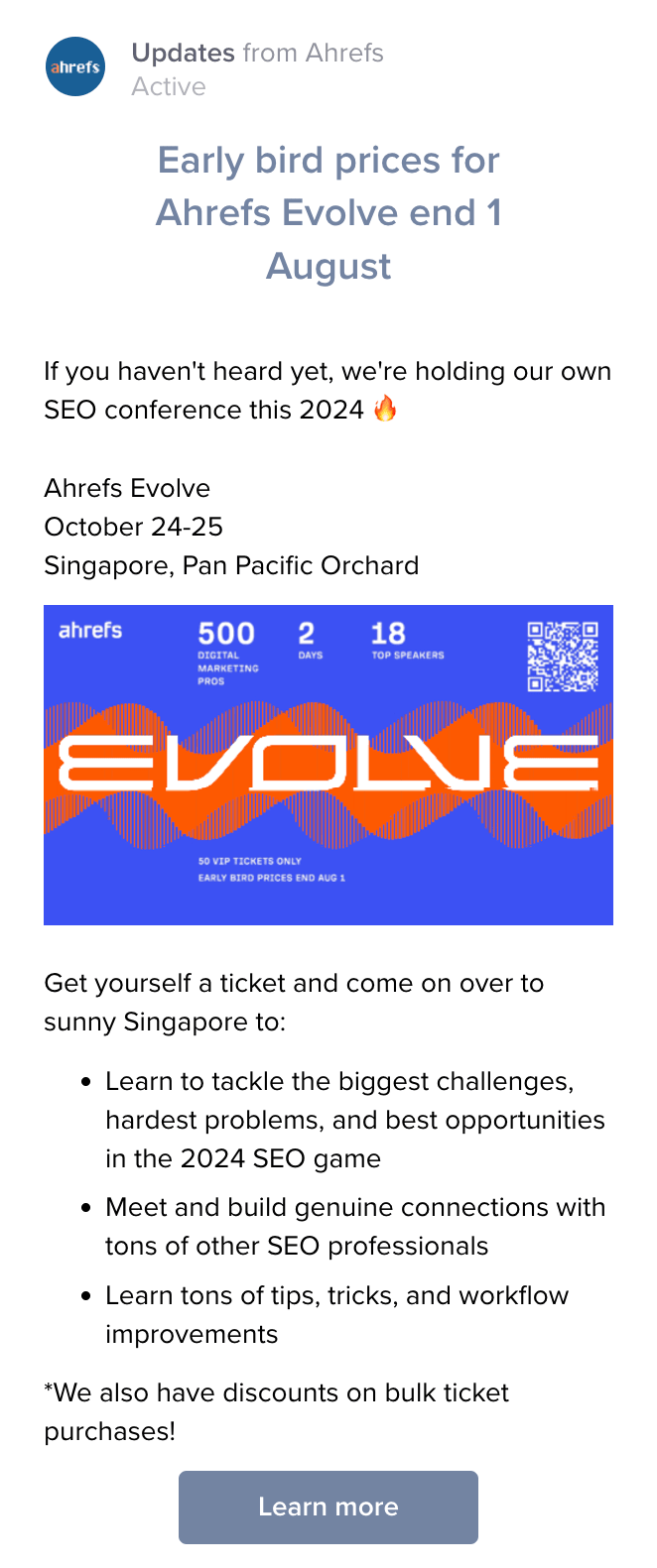
We scheduled multiple emails to our 260,000-strong newsletter audience:
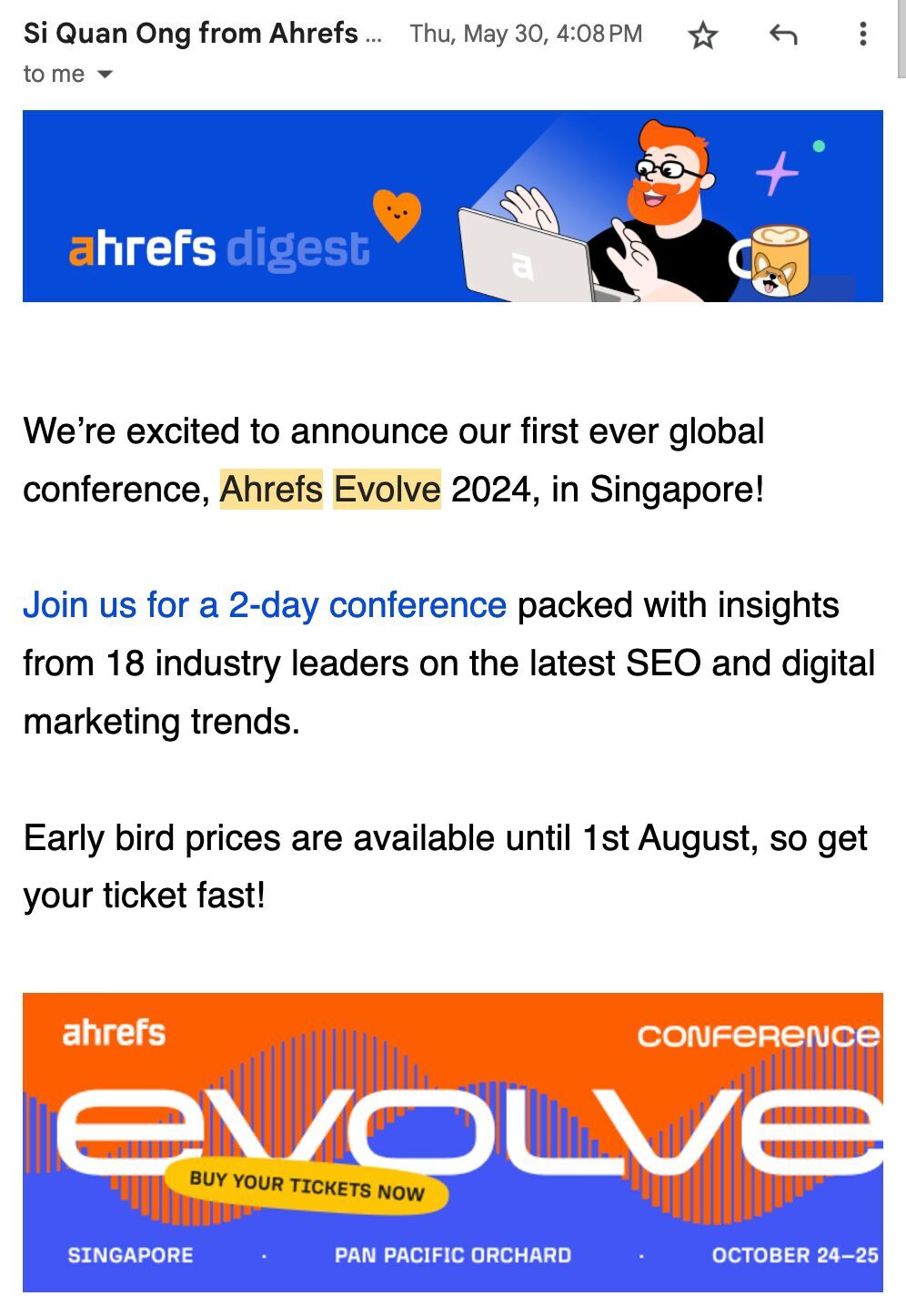
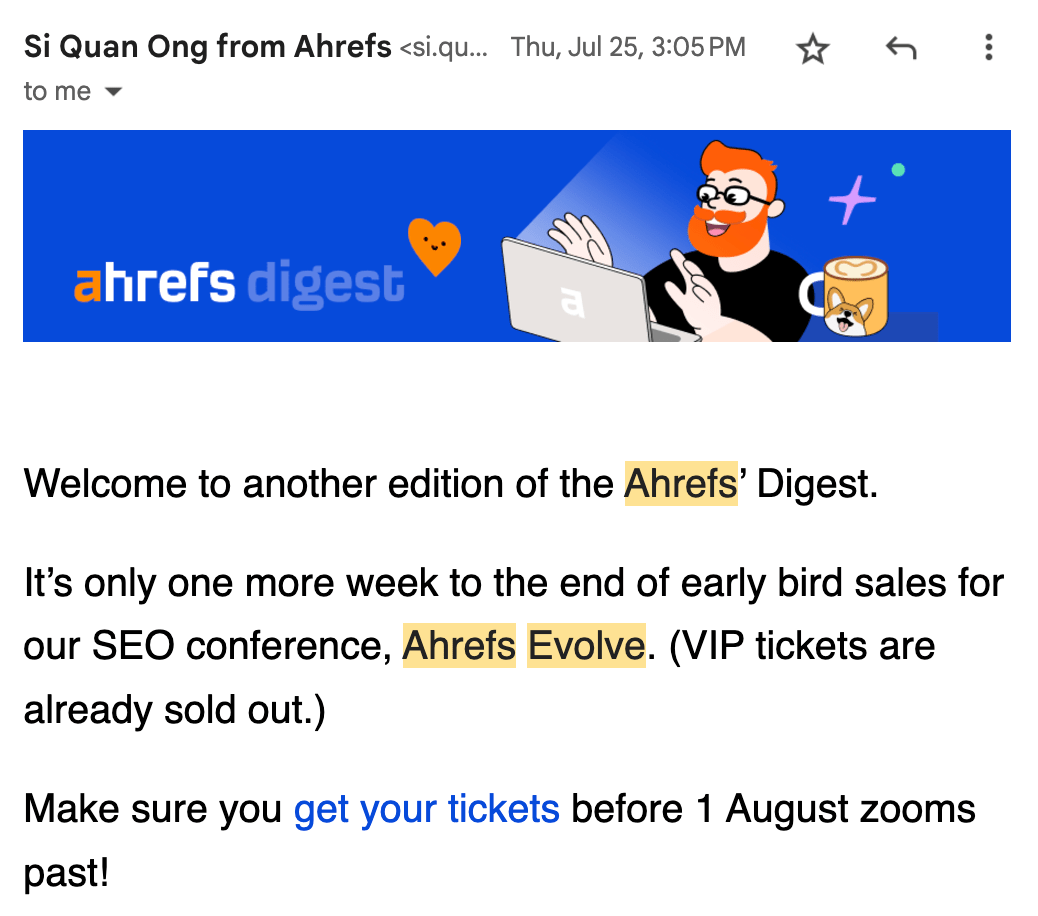
We placed display banners on high-traffic blog pages to drive traffic to our event landing page:
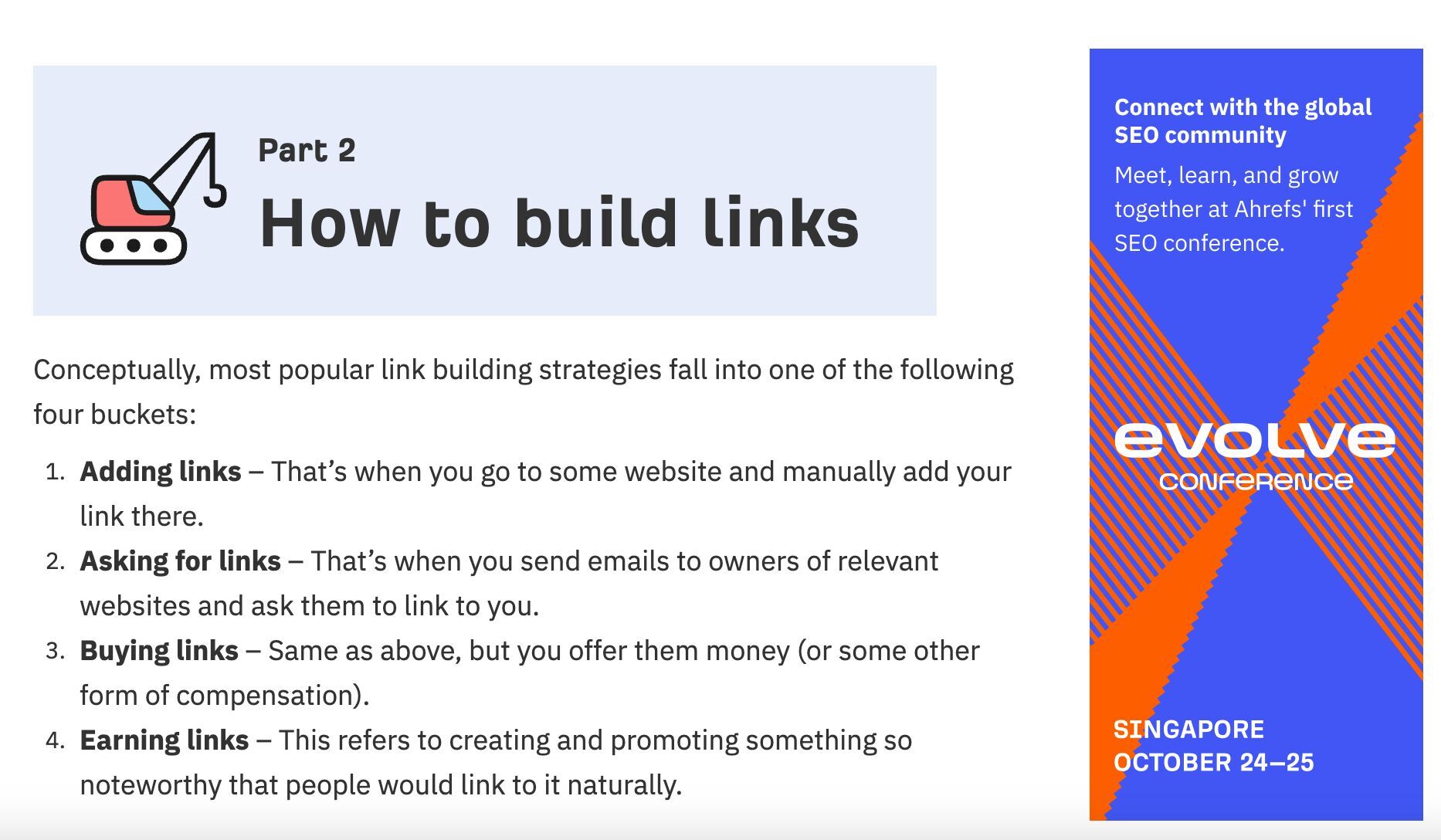
It’s okay to send multiple emails or post frequently on social media. Just because you’ve posted once doesn’t mean everyone has seen it. However, don’t spam. Space them out and keep your messaging fresh.
So, no repeated “buy tickets!” call-to-actions and use all types of messages—speaker teasers, new discounts, FOMO (e.g., “tickets are selling out!”), venue introduction (like our video below), and more.
Speakers are a massive part of any event. Many people will attend a conference just to hear an influential speaker.
Most of the time, their influence is due to their following. So, you’d want to tap into that audience to drive awareness for your event.
For example, we did this by creating individualized speaker “promo cards” for social media. We shared these mini-videos with each speaker and asked them to promote the event to their followers. We also shared them on our own social channels:
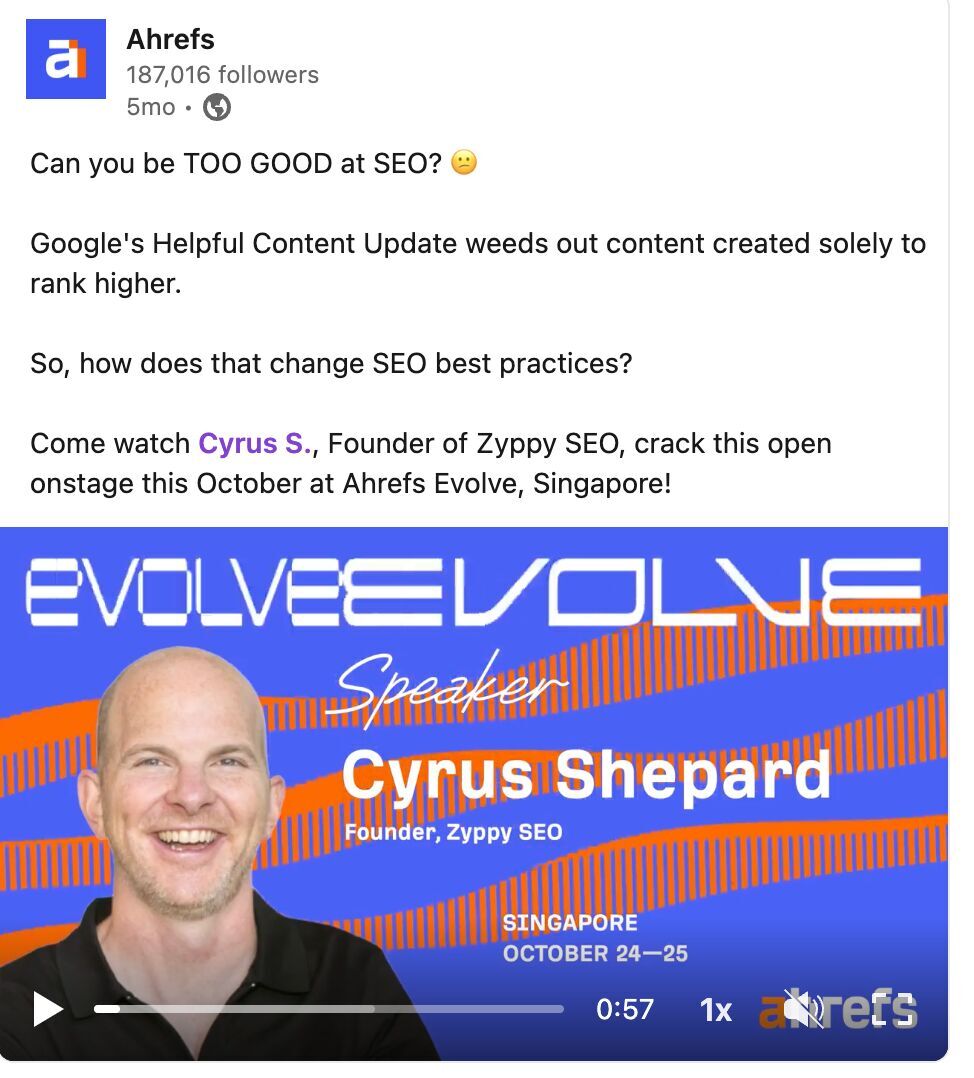
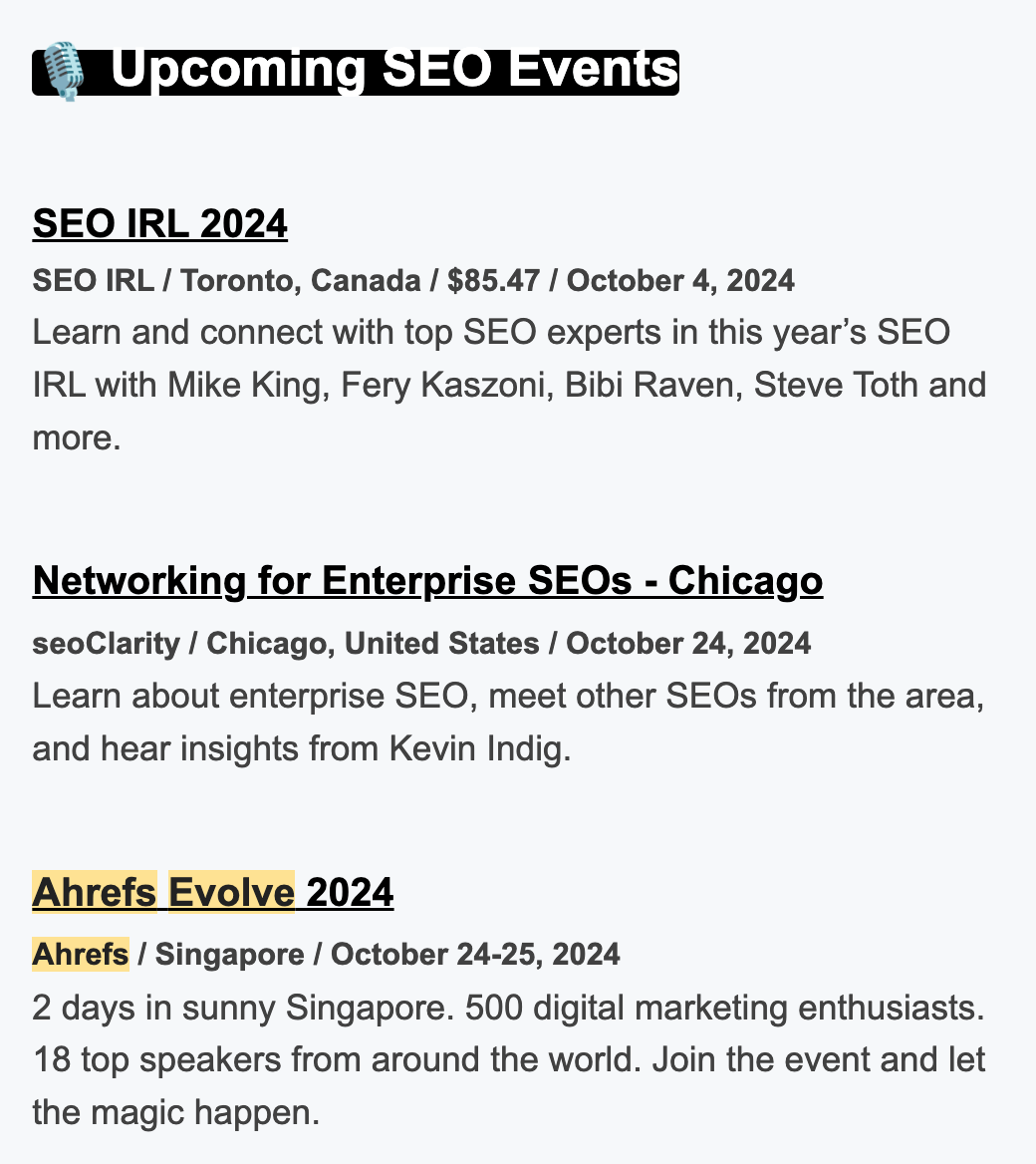
We also gave each speaker special discount codes to incentivize their audience to come for our conference:
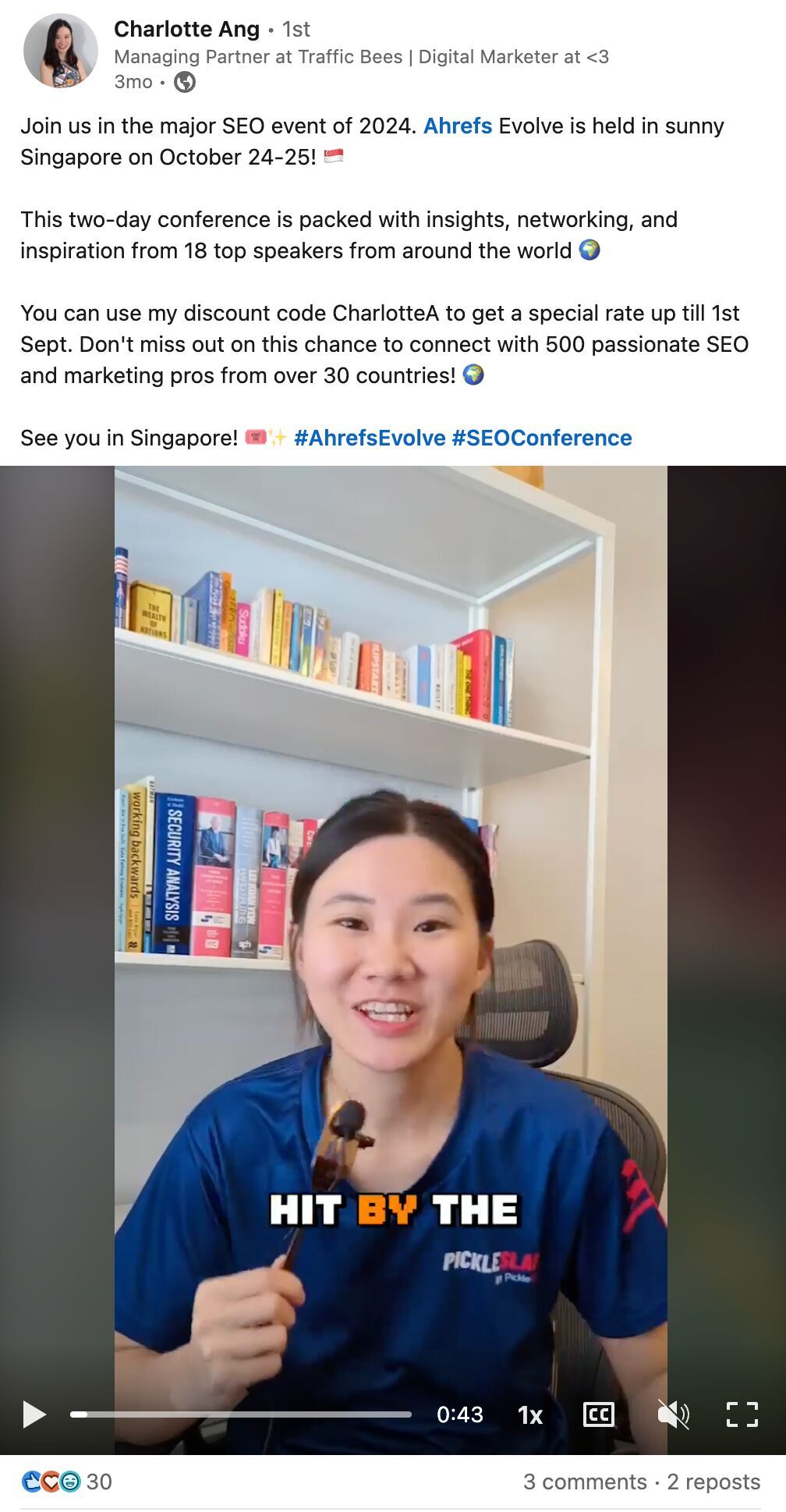
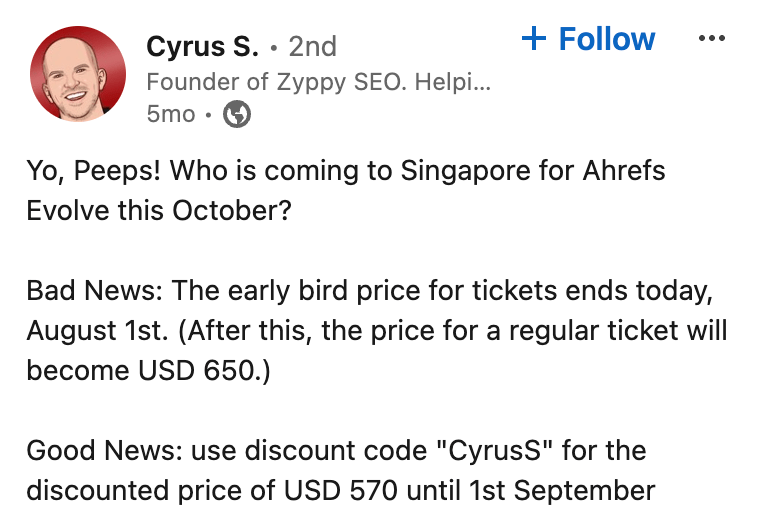
Your venue—the city it’s in and the exact location—plays a huge part in whether your event will be successful or not. Most event marketers know this; that’s why they spend so much time on venue selection.
Yet, almost none of them ever promote or feature the venue in their event promotions. Weird, right? That’s why we decided to flip the script and highlight our venue, Pan Pacific Orchard in Singapore. After all, it wasn’t any venue. It was a beautiful, award-winning one—one that was crowned the world’s best new skyscraper.
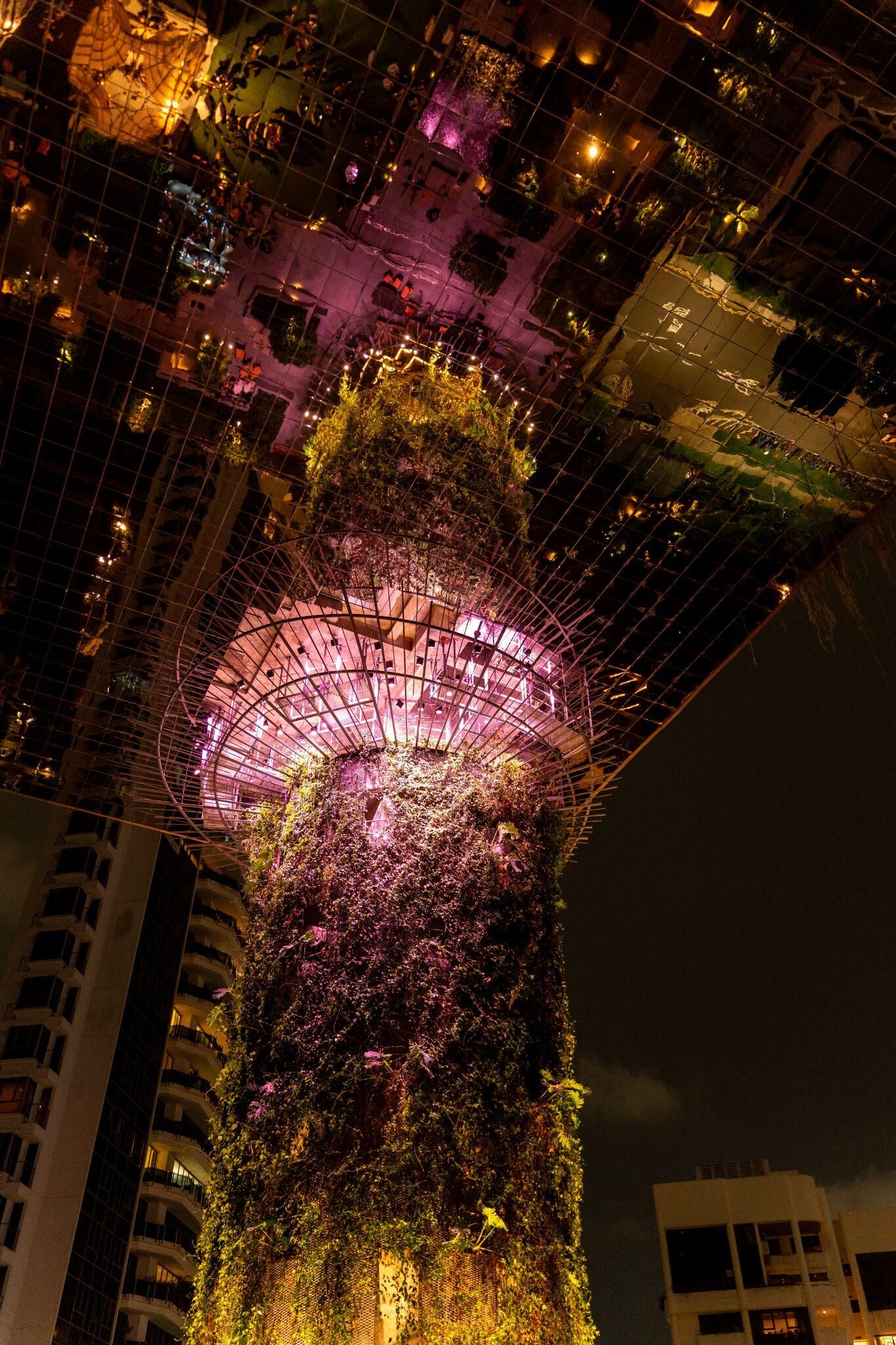
We promoted our venue by producing a short video touring it, highlighting its high ceilings, modern architecture, and open networking spaces:
While you want to rank your event page on Google, it isn’t the only page you should be ranking. There are plenty of other opportunities where you can rank high on Google and insert mentions of your own event.
For example, in order to gain visibility for Evolve, we published two blog posts targeted at “conference”-related keywords:
Here’s how to find such keywords:
- Go to Ahrefs’ Keywords Explorer
- Enter keywords relevant to your event (e.g., marketing, SEO)
- Go to the Matching terms report
- Use the Include filter to look for words like “conferences”, “events”, “meetups”, etc.
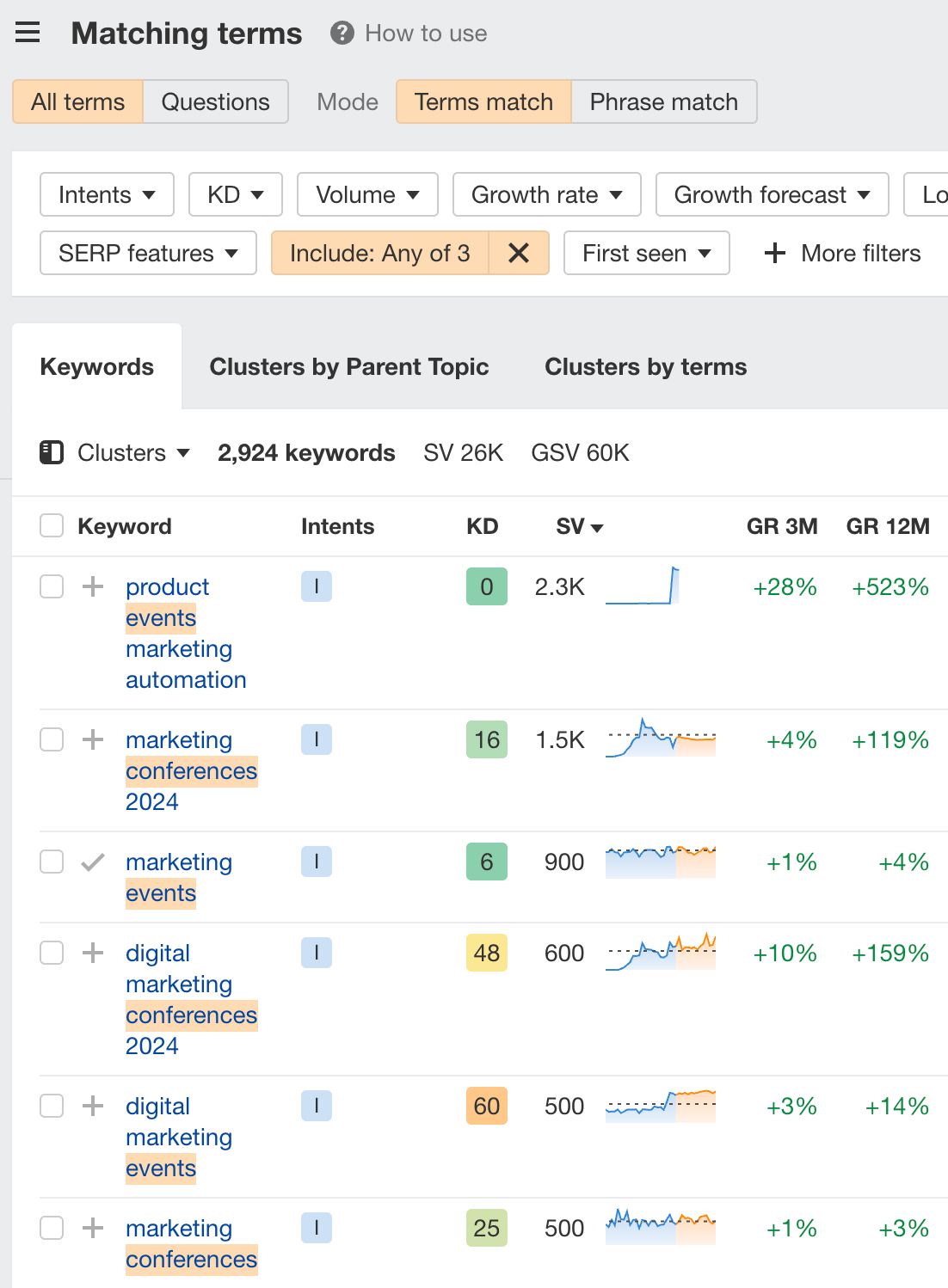
Look through the list and find keywords where you can potentially pitch your event. For example, we naturally mentioned Ahrefs Evolve as one of the SEO conferences worth attending last year:
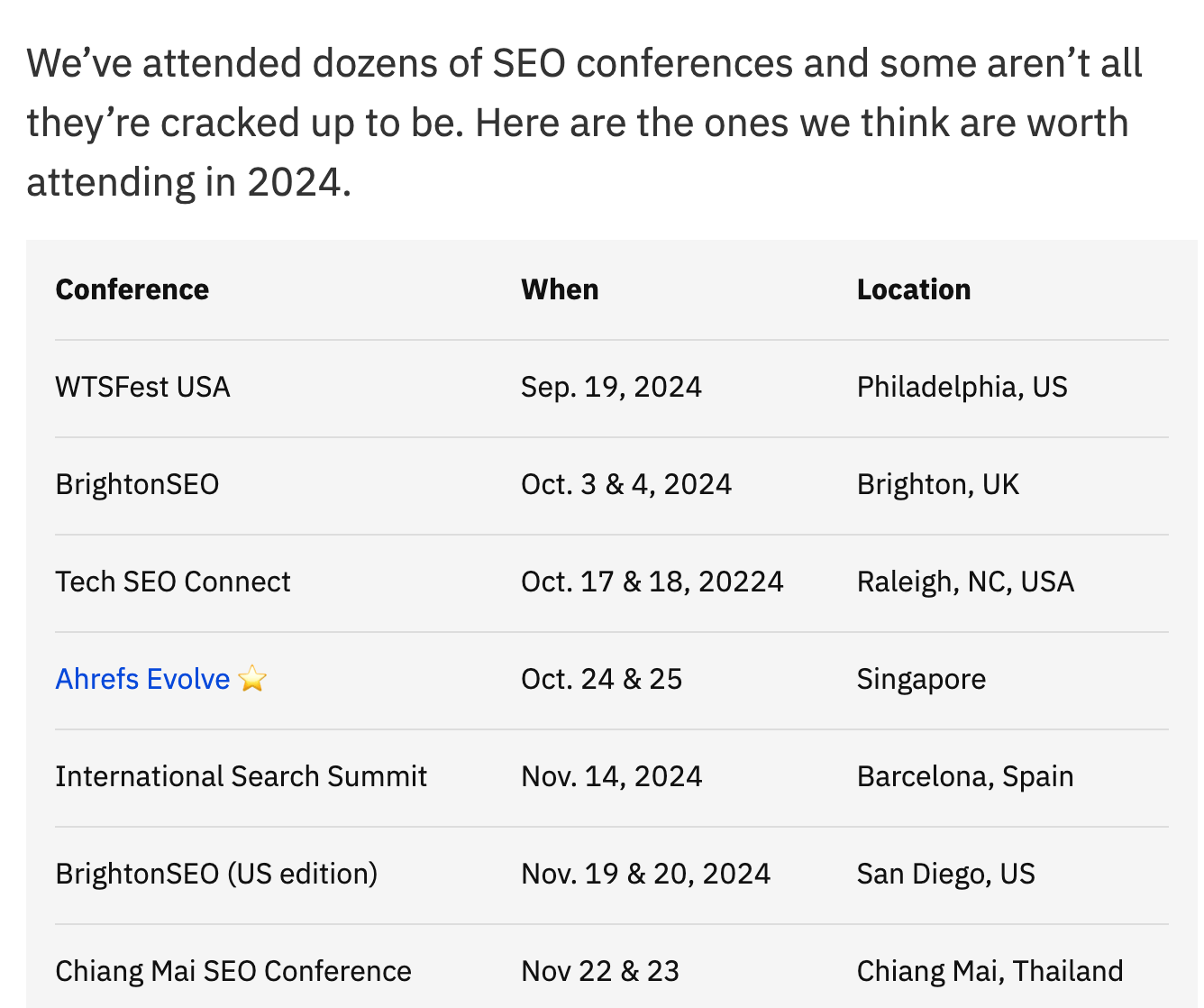
As you can see, this page ranked pretty high on Google and maintained its rankings (at least until most of the mentioned events were over):

The best part is that we can simply update this page this year and it’ll likely regain its rankings again—you can see the spike in rankings every time we update this post:

However, creating content isn’t just about ranking. You can also support your events team. For example, we wrote one for potential attendees on how to persuade their bosses to allow them to attend Evolve:
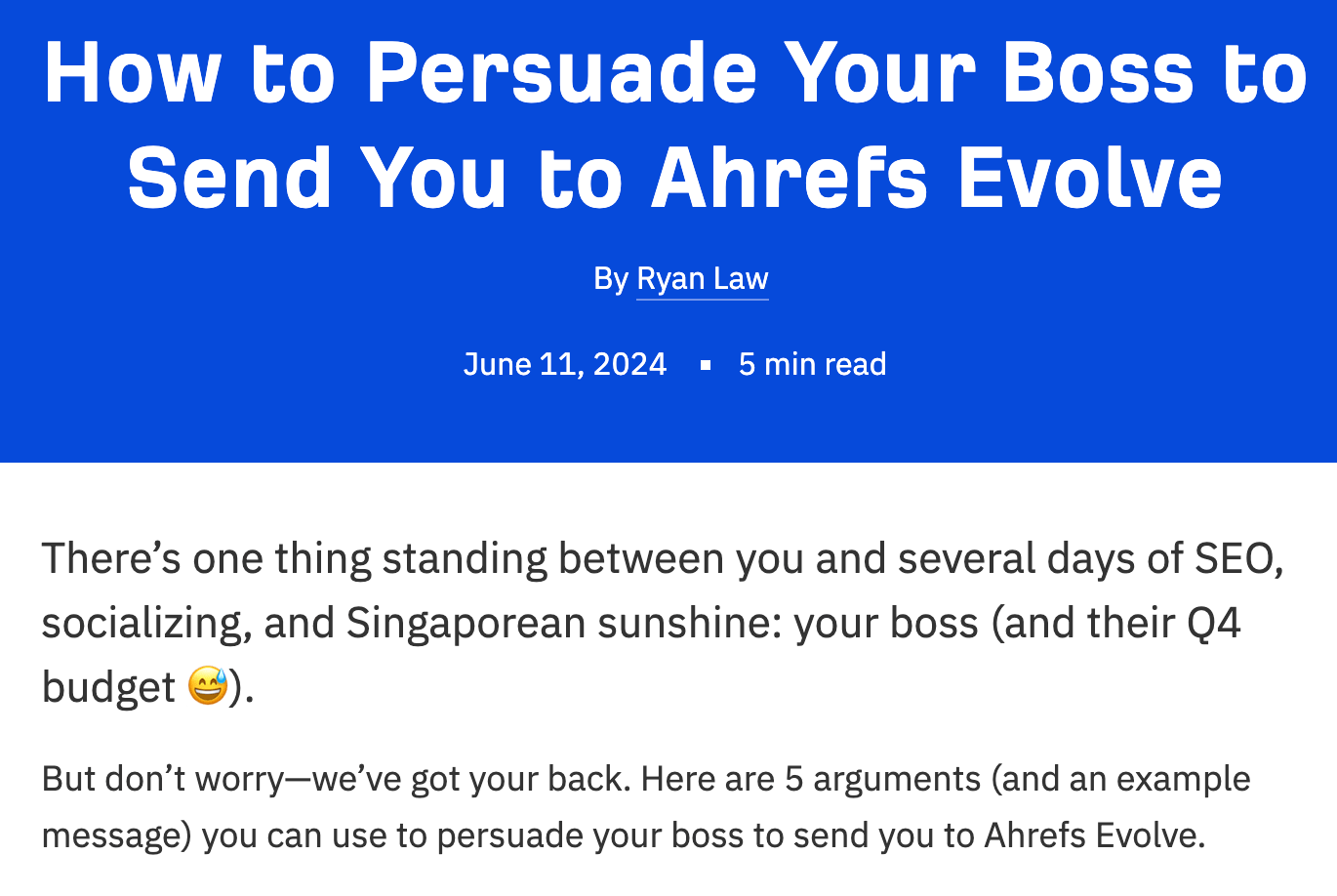
We even gave them an email template they could use right away:
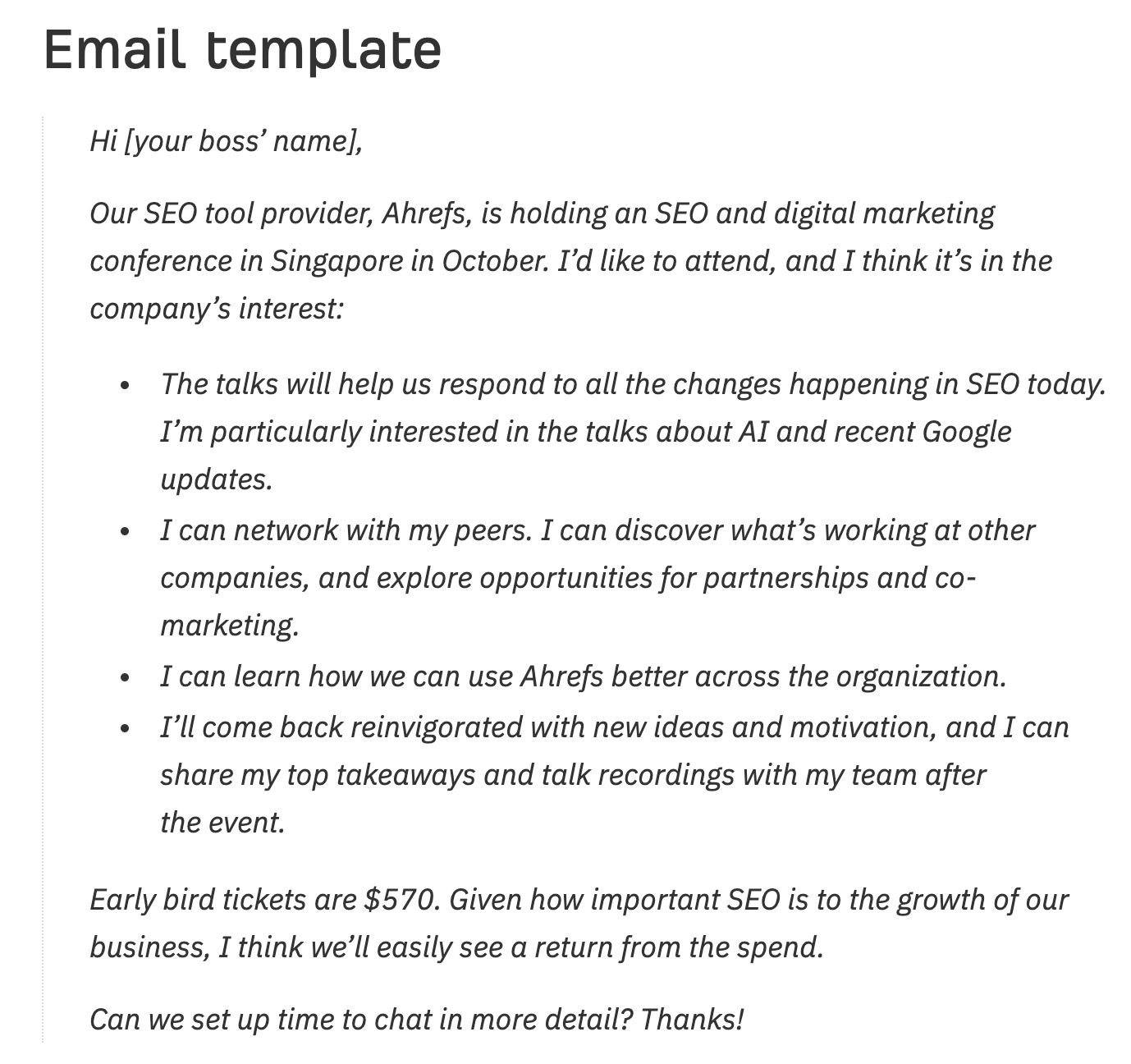
If someone is attending an industry event, chances are they care and would invest in attending more events.
Since we were simultaneously organizing and running smaller-scale workshops, panels, and webinars—Ahrefs Evolve was only one part of our event marketing strategy—we would also promote our conference in those events:
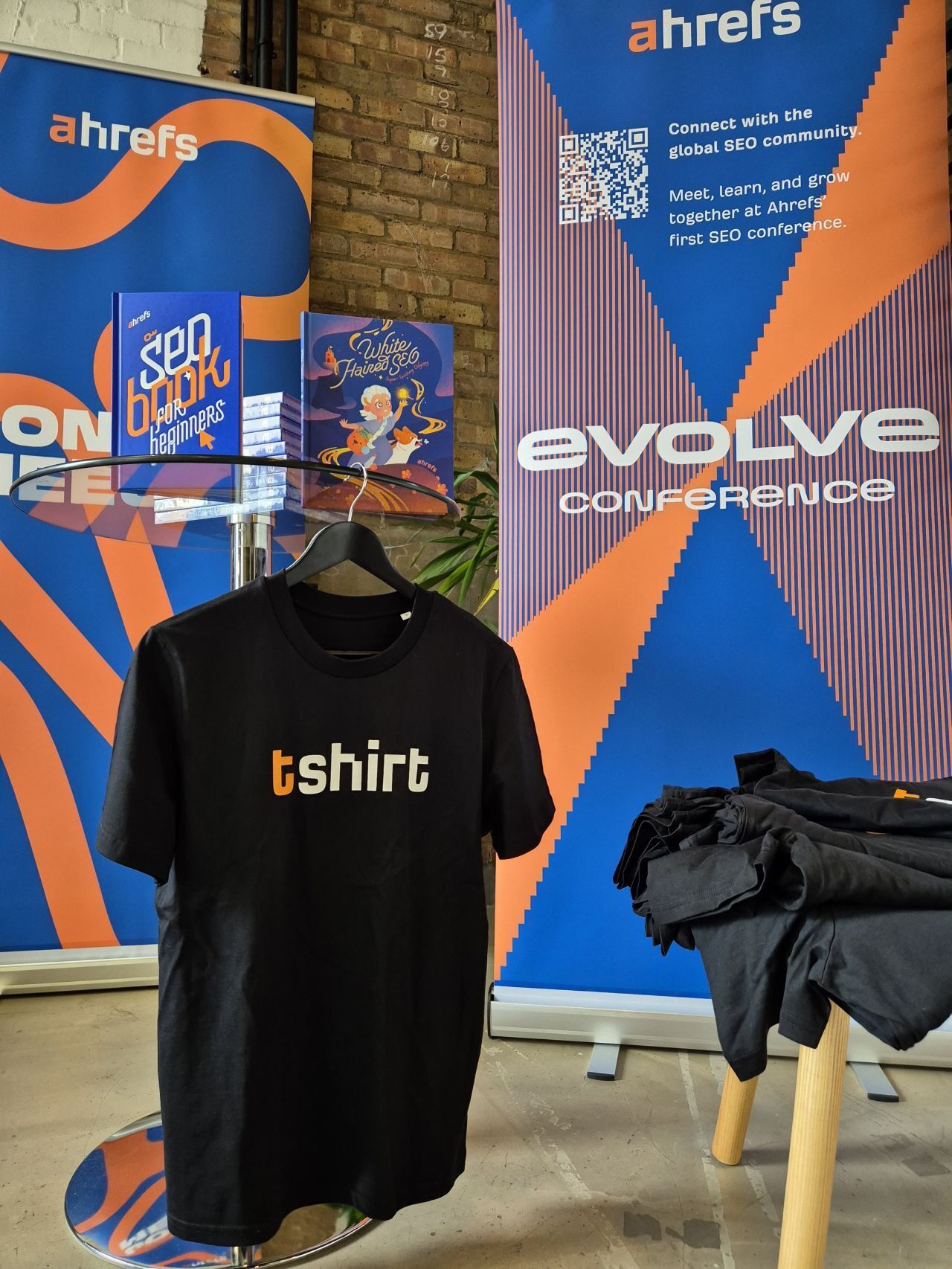
We did this by having a roll-up banner of the event with a QR code people could scan to get the tickets. The emcee, one of our team members, would also make sure to mention it frequently during the workshop itself.
If the event was held in our office, we would display the event information and the QR code on a TV.
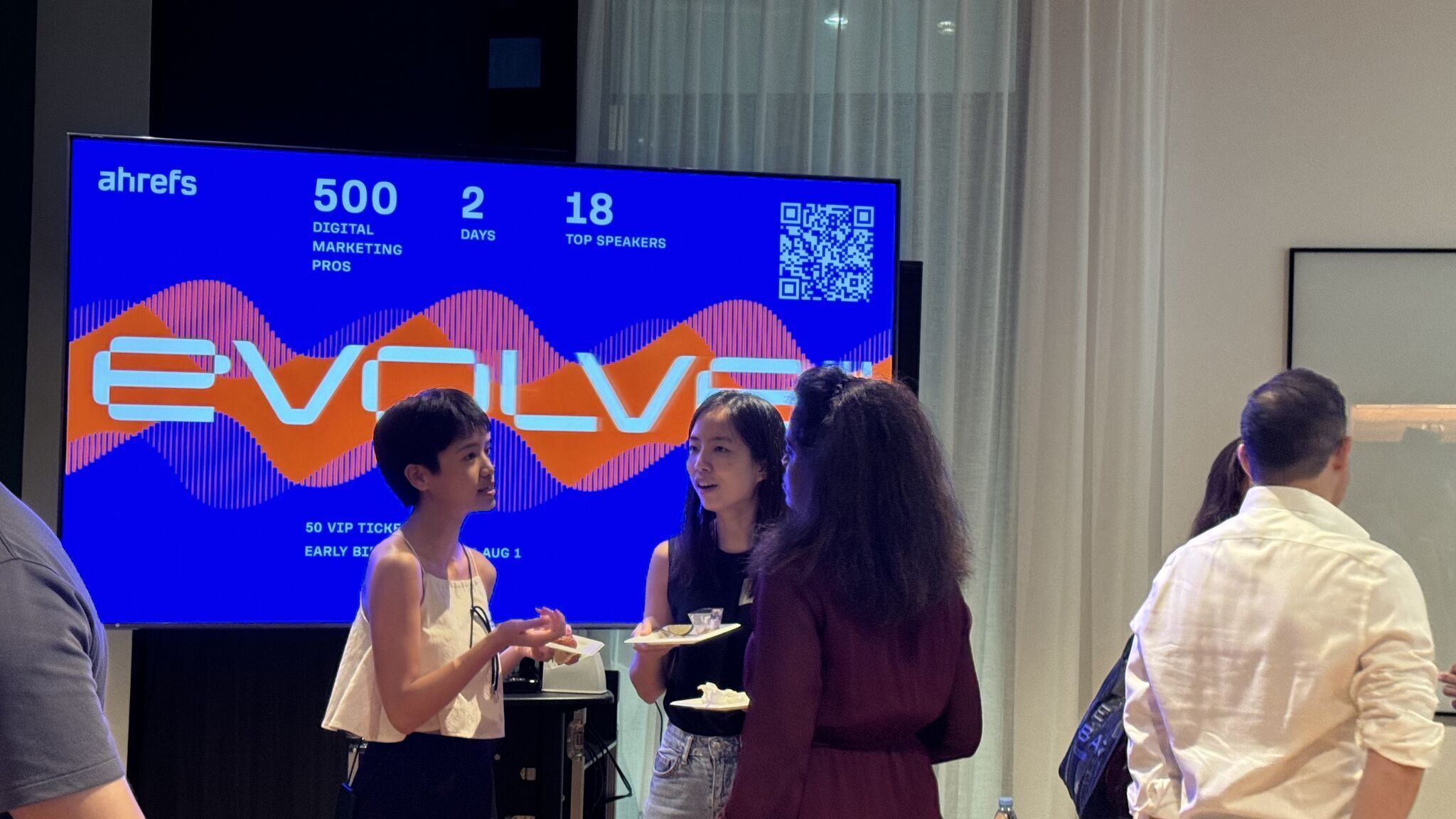
If you’re not doing event marketing, don’t worry. You can also promote your event in other events or channels:
- If you’re sponsoring a conference or running a booth in one, have printed materials promoting your event too.
- If you’re speaking at a conference or being interviewed on a podcast/YouTube, make sure to weave in a relevant mention of your upcoming event.
- If you run your own YouTube/podcast, even better. Promote your event in your intro or as a pre-roll ad.
FOMO is a powerful psychological trigger that can help build awareness for your event. People want to be part of the in-group—they want to attend events their peers are attending and get the “behind-closed-doors” knowledge.
You’d want to constantly remind your audience that they’re missing out. For example, we announced on social media whenever tickets were sold out or selling fast:
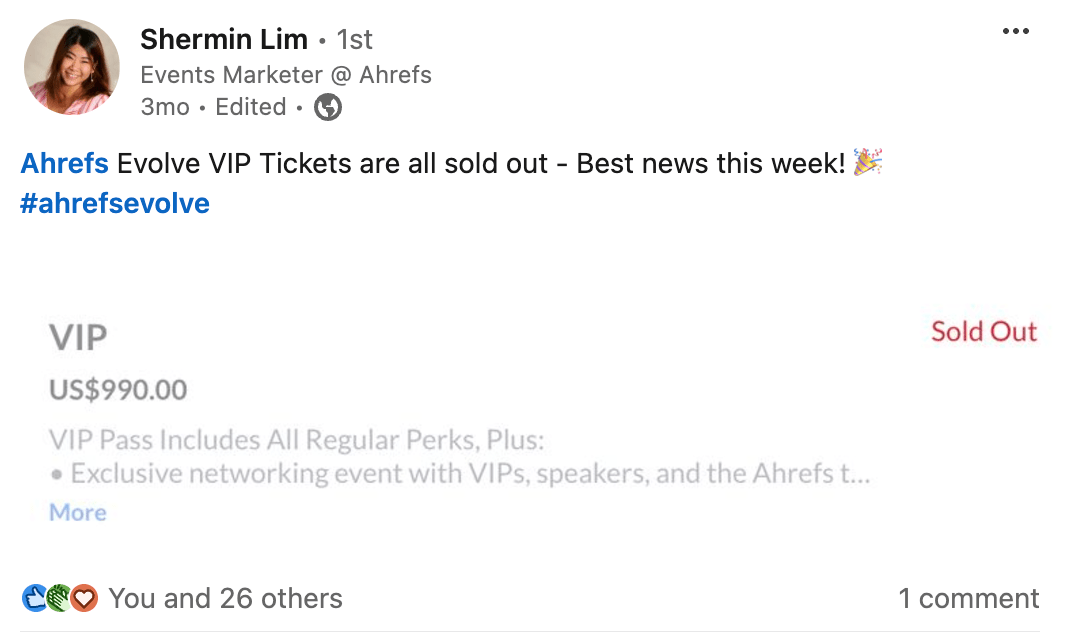
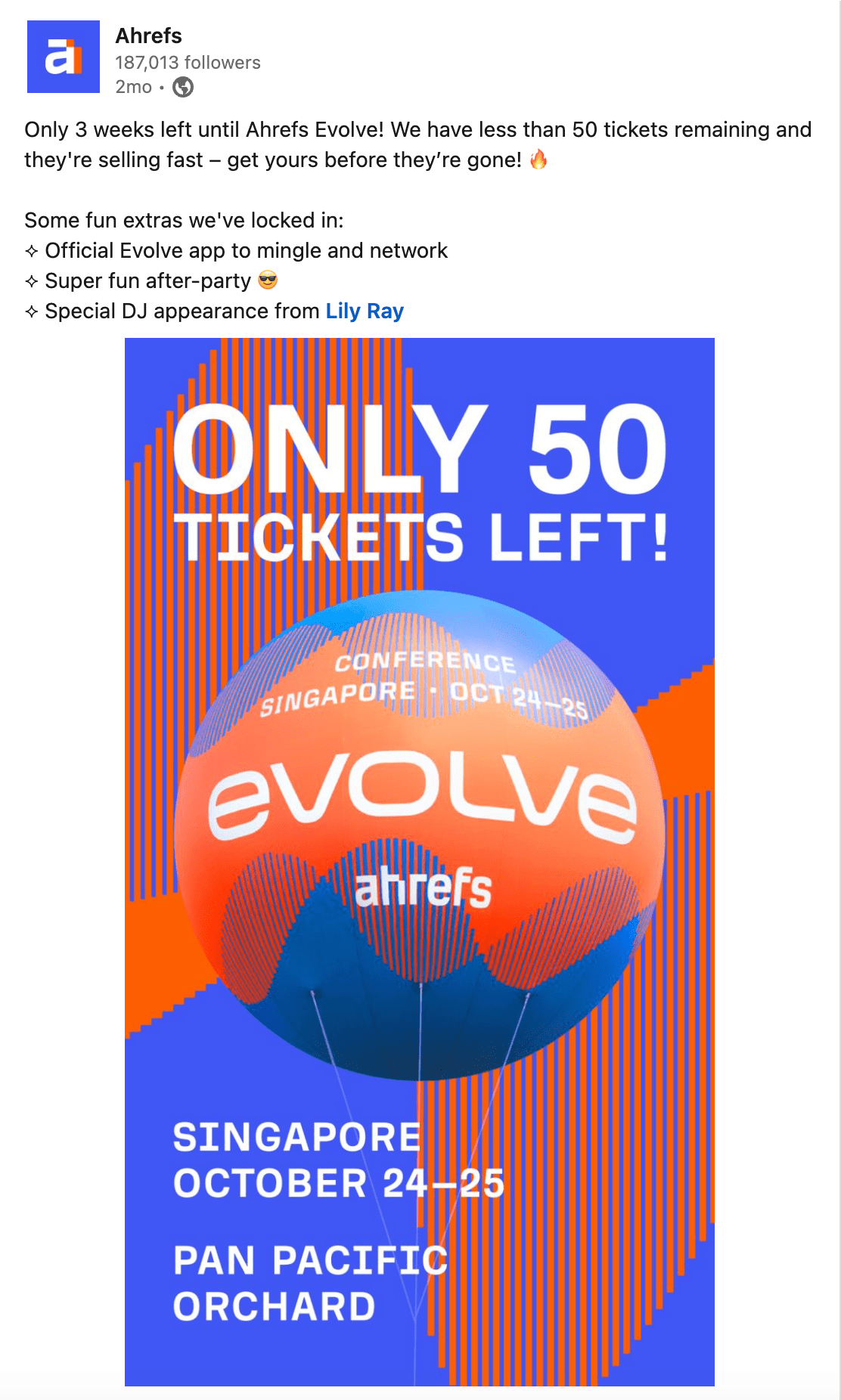
We ran a generous giveaway to build hype for the event:
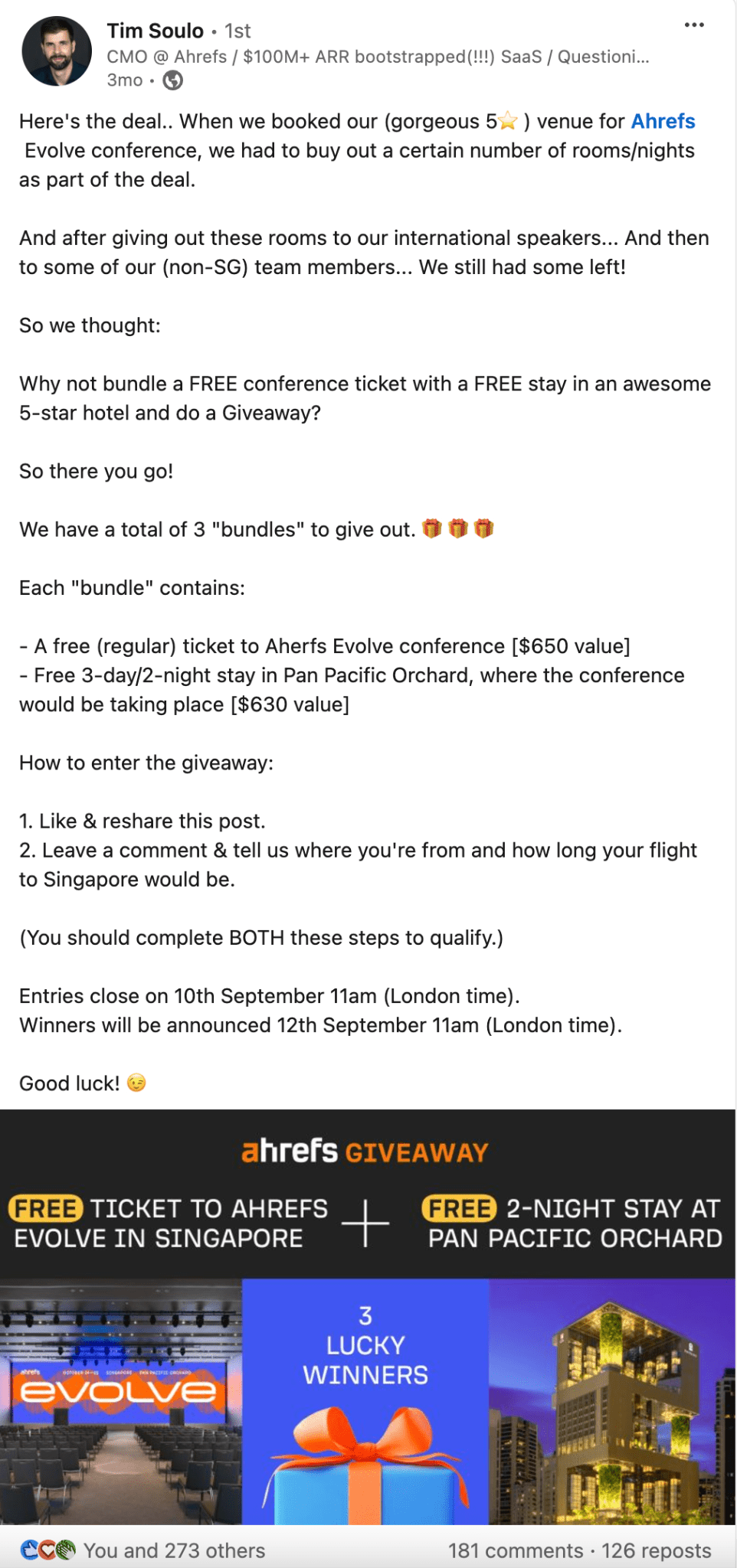
We made graphics showing the global profile of attendees (in the event that distance was a factor):
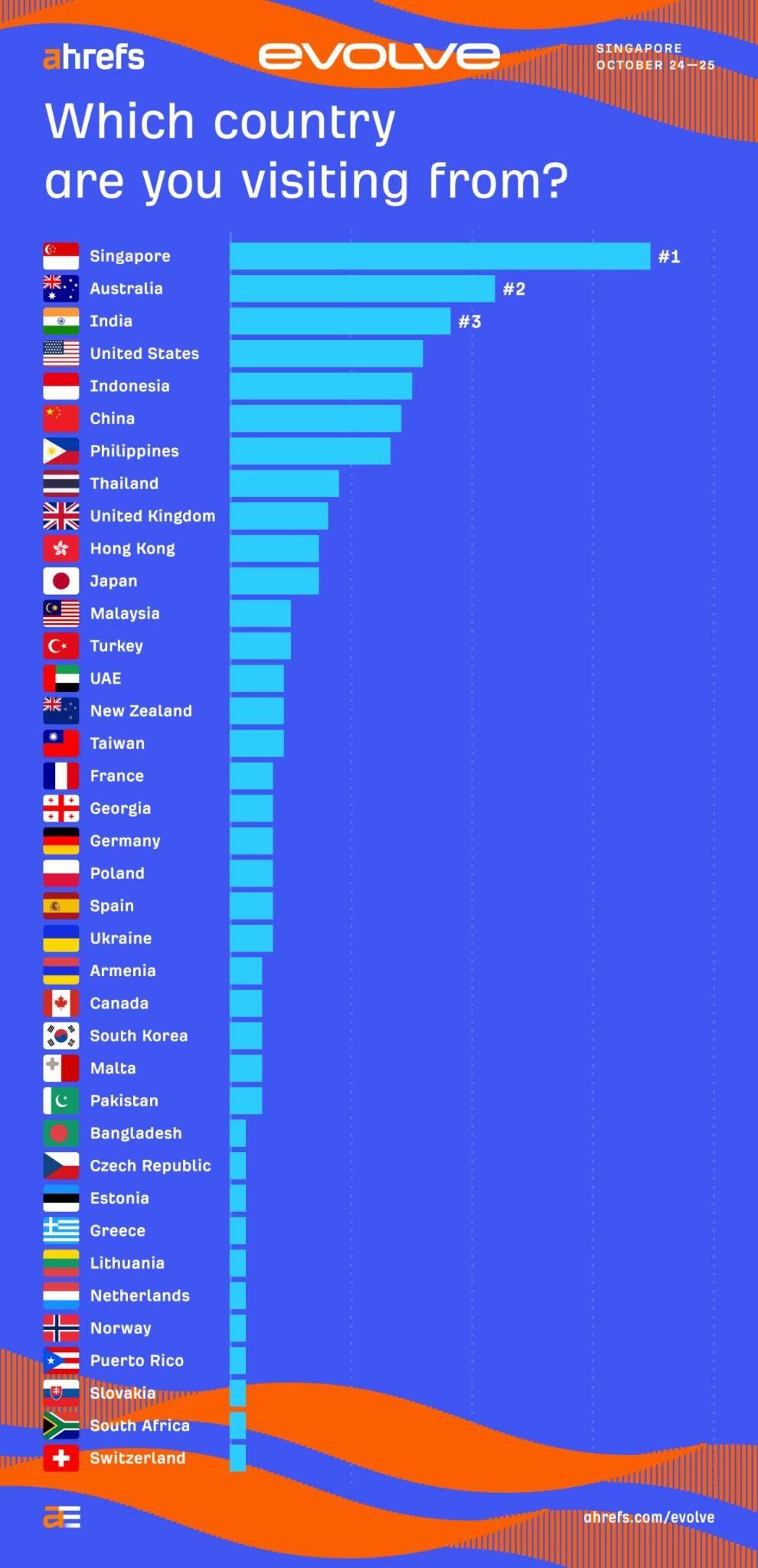
We created social media cards for attendees to share that they were attending Ahrefs Evolve:
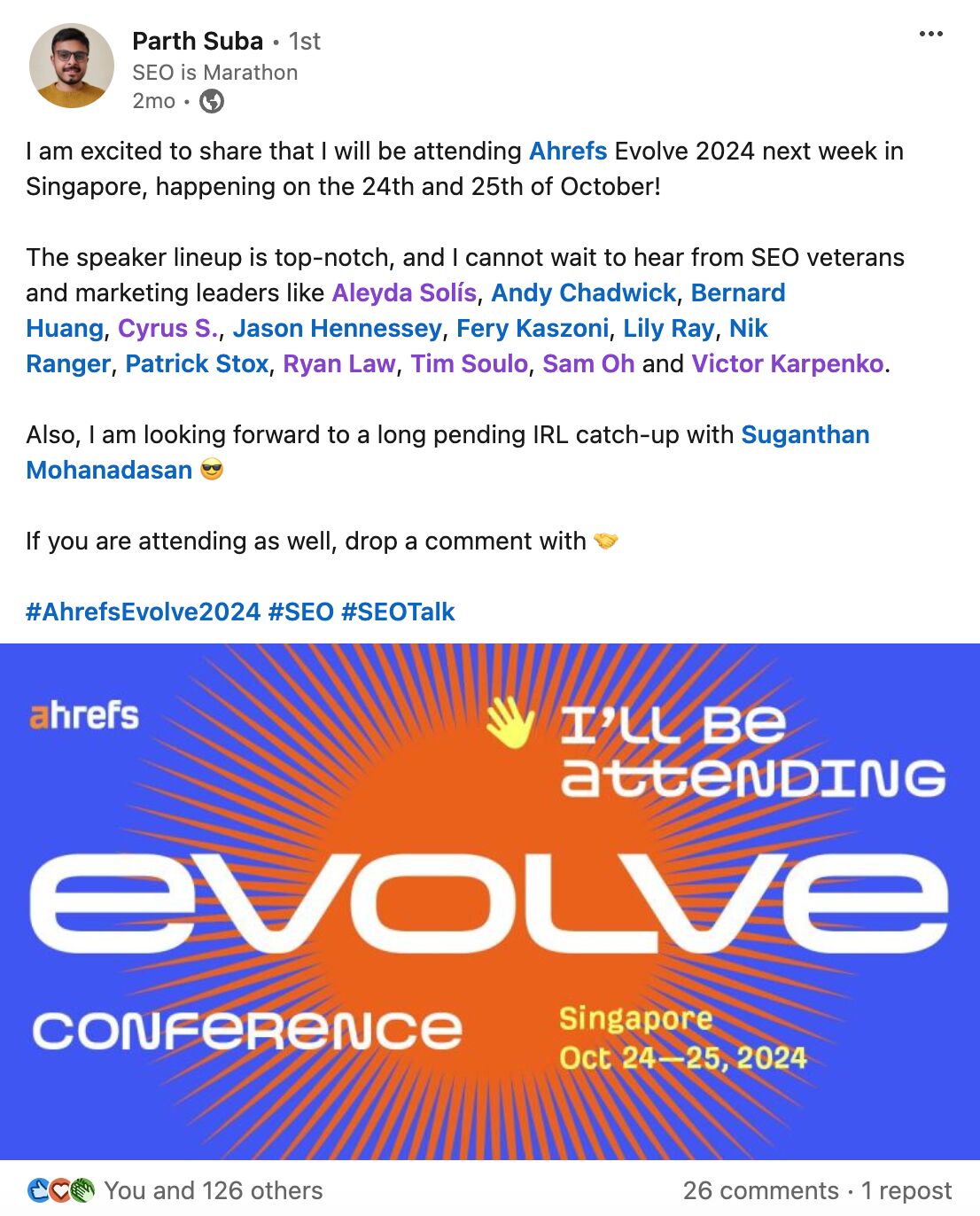
At Ahrefs, we love to take risks with our marketing. We love it because it differentiates us from a sea of sameness where every event promotion is identical.
To promote Evolve, we designed a giant helium balloon with the event branding. It wasn’t AI; we actually flew it up, staged a photoshoot (with drones), and turned those images into eye-catching ad creatives.
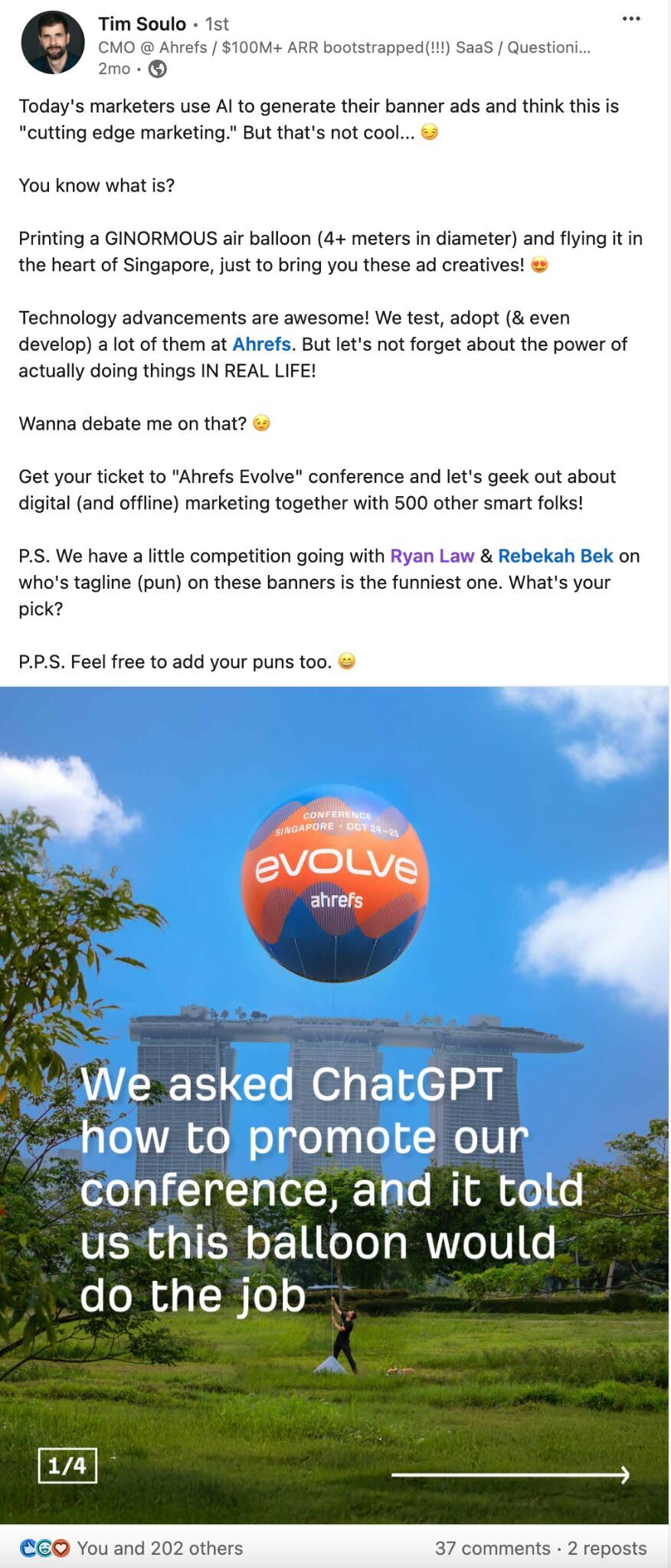
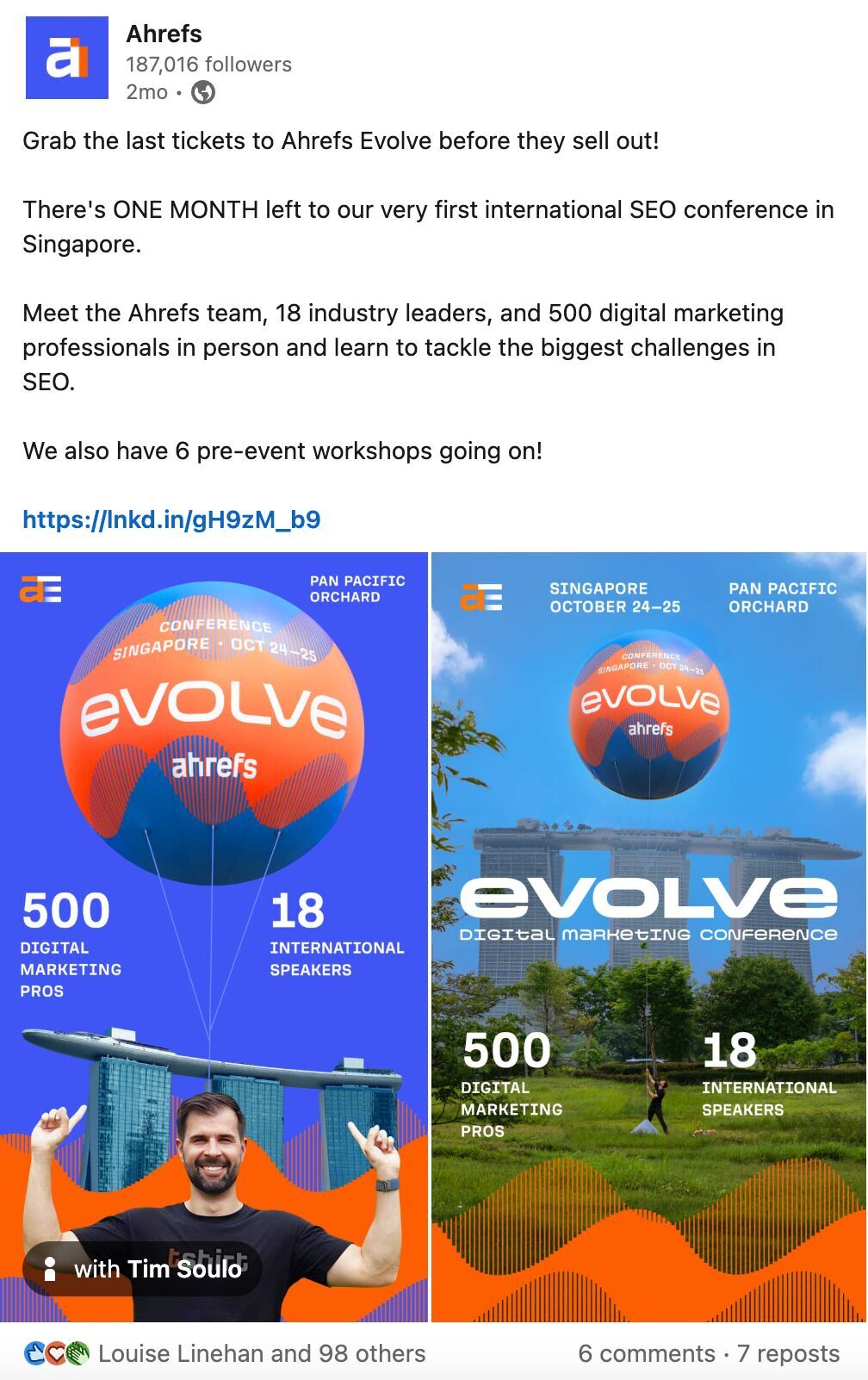
Do you have to spend the same amount of money we did? You don’t have to—there are plenty of low-cost, high-impact stunts.
For example, while not specifically to promote an event, Deliveroo Singapore used to have its staff wear kangaroo onesies and go around the Central Business District to hand out flyers and other swag items.
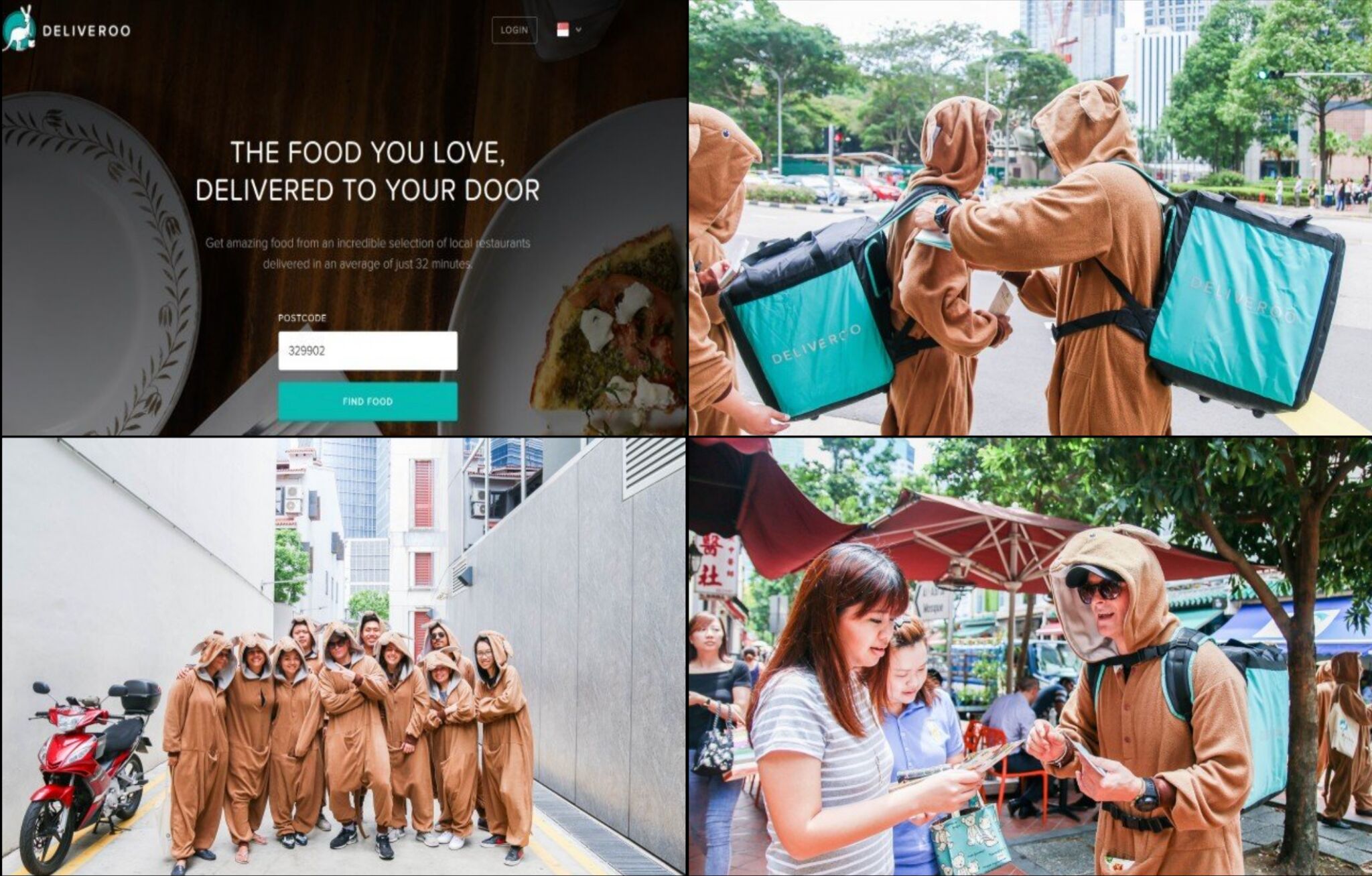
It’s all up to your own creativity.
This is pretty obvious, but if you have the budget, you can also run ads on Facebook, Instagram, X, or TikTok for your events.
For example, we spent a total of $8,000 on Facebook and Instagram ads for Evolve:
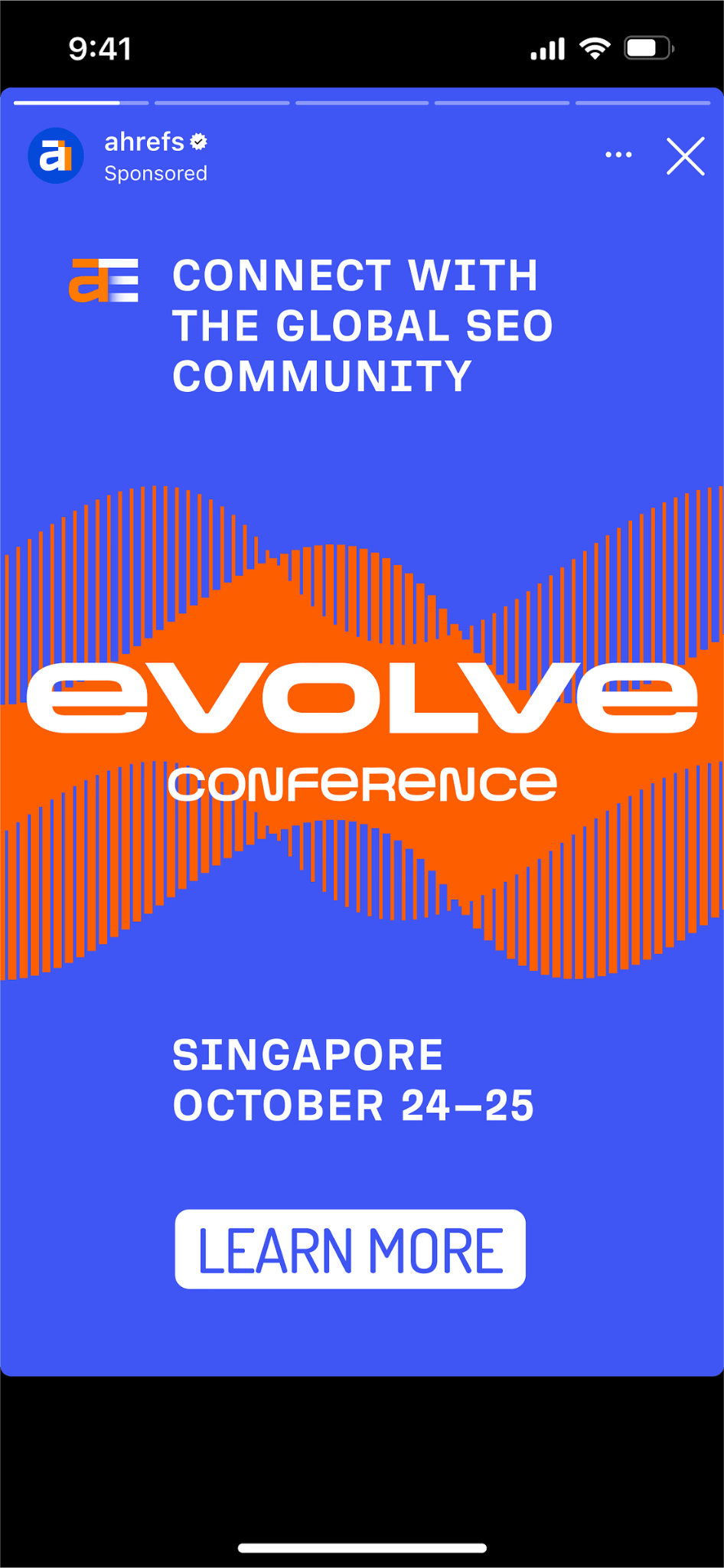
Final thoughts
Promoting an event is like launching a startup. If you want attention and visibility, you have to go all guns blazing. If you want to sell out tickets, you need to combine most, if not all, of the tactics above.
Because that’s what we did to sell out a 500-person conference.
Want to see how we’ll promote Evolve 2025? Sign up here to learn more.
I’m Manas Ranjan Sahoo: Founder of “Webtirety Software”. I’m a Full-time Software Professional and an aspiring entrepreneur, dedicated to growing this platform as large as possible. I love to Write Blogs on Software, Mobile applications, Web Technology, eCommerce, SEO, and about My experience with Life.


